How the Cavaliers could dethrone the Warriors and win the NBA Finals
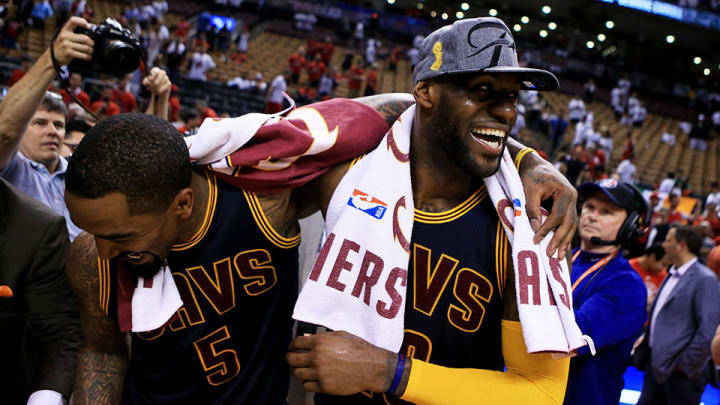
Your teams on the go or at home. Personalize SI with our new App. Install on iOS or Android.
Editor's note: Read Ben Golliver's full NBA Finals preview here.
As always with the Cavaliers, all roads to success run through LeBron James, who enters the Finals in great health, in good spirits, with more help, with a reduced burden, and with David Blatt safely returned to the other side of the Atlantic. A rested, vengeful James surrounded by a host of threats—Kyrie Irving, Kevin Love, J.R. Smith, and newcomer Channing Frye among them—has the potential to produce serious, serious fireworks, even against Golden State.
While the Warriors have had to deal with a laundry list of scoring threats in the postseason, from James Harden to Damian Lillard to C.J. McCollum to Kevin Durant to Russell Westbrook, they’ve yet to face anybody with James’s vision, playmaking ability, physicality and experience. That goes without saying: There’s still no one like James, and he’s posting 24.6 PPG, 8.6 RPG and 7 APG in these playoffs, even though he’s playing the fewest minutes per game during his postseason career and nearing a postseason career-low in usage rate. Less has definitely been more for James and the Cavaliers in this playoffs, as it’s allowed Irving, Love and Smith the chance to make their marks.
• MORE NBA: Why Klay Thompson vs. J.R. Smith could define Finals
Although Oklahoma City failed to finish off Golden State, it gave Cleveland a clear blueprint for the upset: Steal Game 1, protect home-court and try to exploit Green’s volatility while making the most of any contest in which Curry isn’t lights out. This seems achievable for the Cavaliers despite some of their individual matchup issues because James has so many weapons at his disposal. Whereas Oklahoma City really needed offensive contributions from the streaky Dion Waiters and the jumper-less Andre Roberson, Cleveland can count on James creating a steady diet of quality looks for Irving, Love, Smith, Frye, Shumpert and Jefferson, all of whom are shooting better than 44% from deep during the postseason.
Lue might not have great individual matchups for Golden State’s stars, but he does have options. He can dust off center Timofey Mozgov and try to pound the glass, as Oklahoma City did with solid results. He can go with the Love/Thompson/James frontline that mixes shooting and second-chance points. He can go to super interchangeable small lineups—perhaps with James at center—thanks to a perimeter corps that includes Irving, Matthew Dellavedova, Shumpert, Smith and Jefferson. And he can go to all-defense lineups that dump Irving and Love, perhaps something like Dellavedova, Shumpert, Smith, James and Thompson. Late in the West finals, Thunder coach Billy Donovan seemed to run out of useful bodies off the bench; Lue shouldn’t have that problem, as his bench-heavy units have put up strong numbers so far during the postseason.
GALLERY: NBA championship rings through the years
NBA Championship Rings Through the Years
2017-18 Golden State Warriors
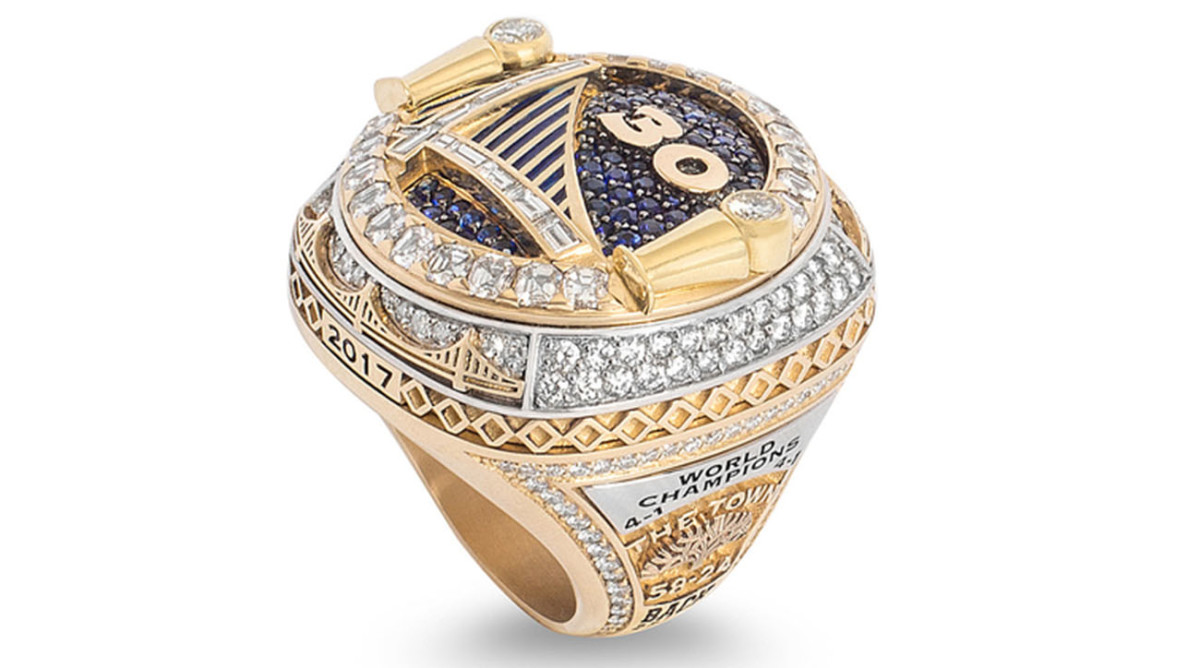
The Golden State Warriors swept the Cleveland Cavaliers to win their third title in four years. The team got reversible rings with 74 sapphries on one side of the ring. The 74 represents the total number of victories the team earned during the regular season and playoffs in bringing home the franchise's sixth championship.
2016-17 Golden State Warriors
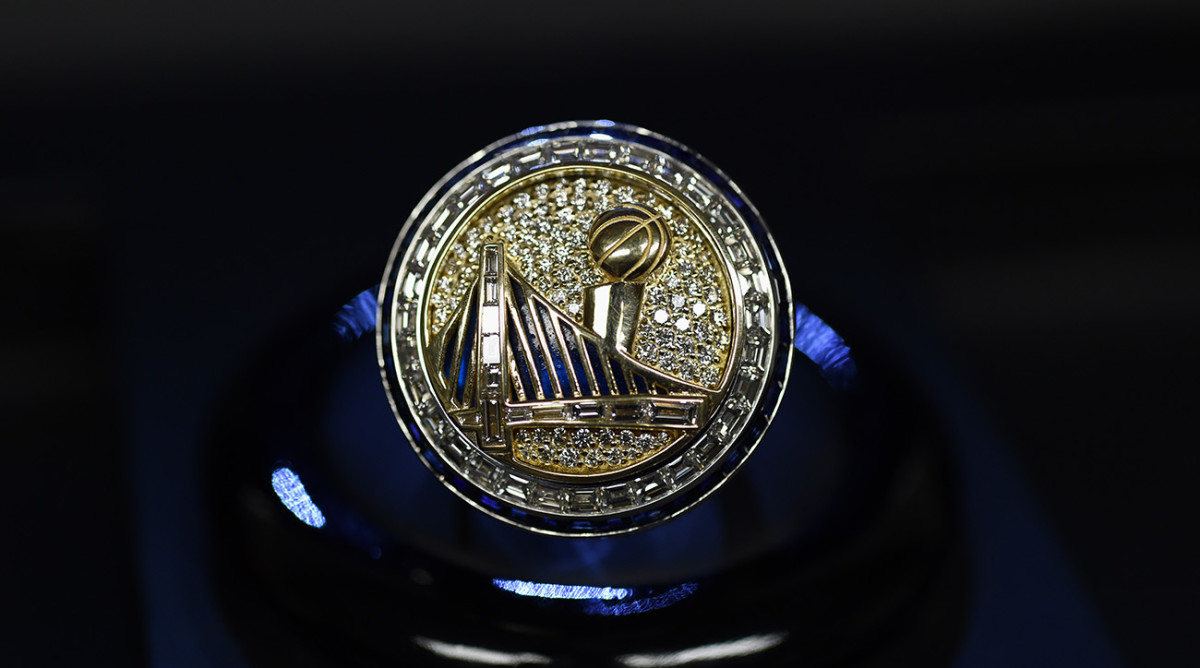
The Warriors beat LeBron James and the Cleveland Cavaliers in the 2017 NBA Finals to win their second title in three years.
2015-16 Cleveland Cavaliers
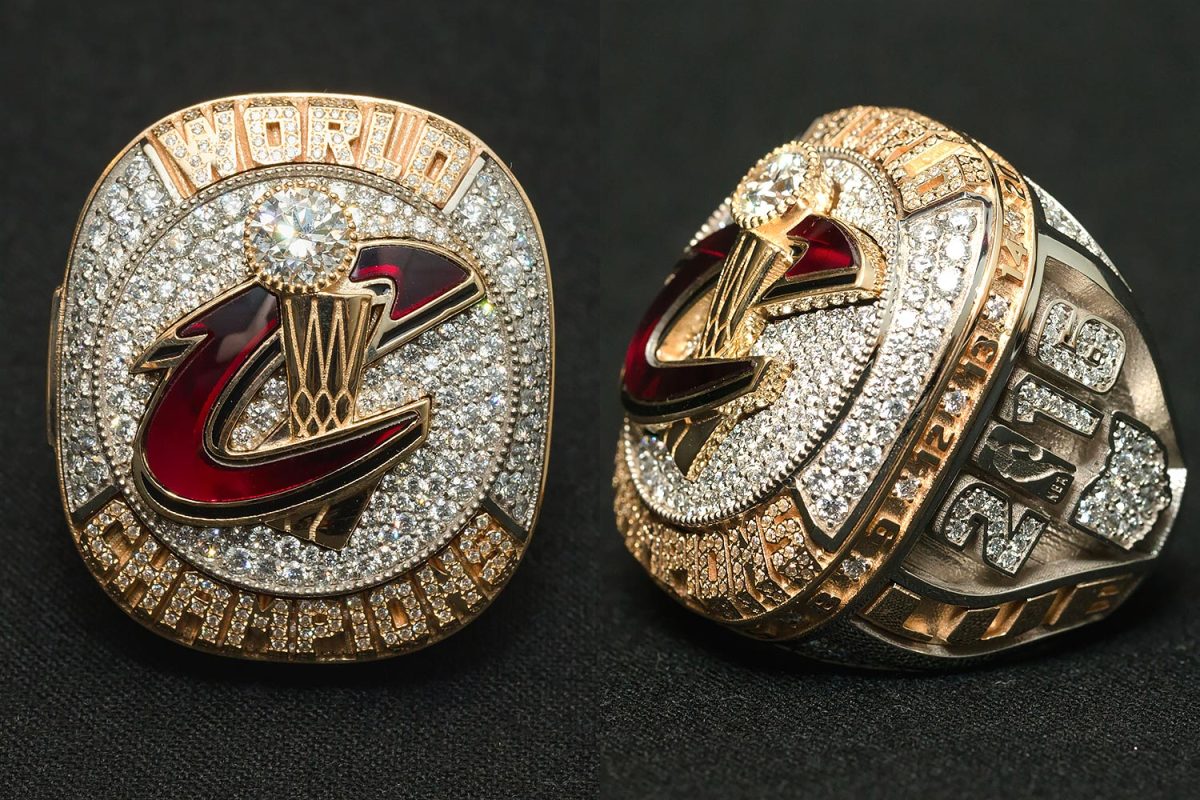
NBA Finals MVP LeBron James and the Cavs defeated the defending champion Warriors in seven games for these rings featuring the Cavaliers’ “C” wrapped around the Larry O’Brien trophy.
2014-15 Golden State Warriors
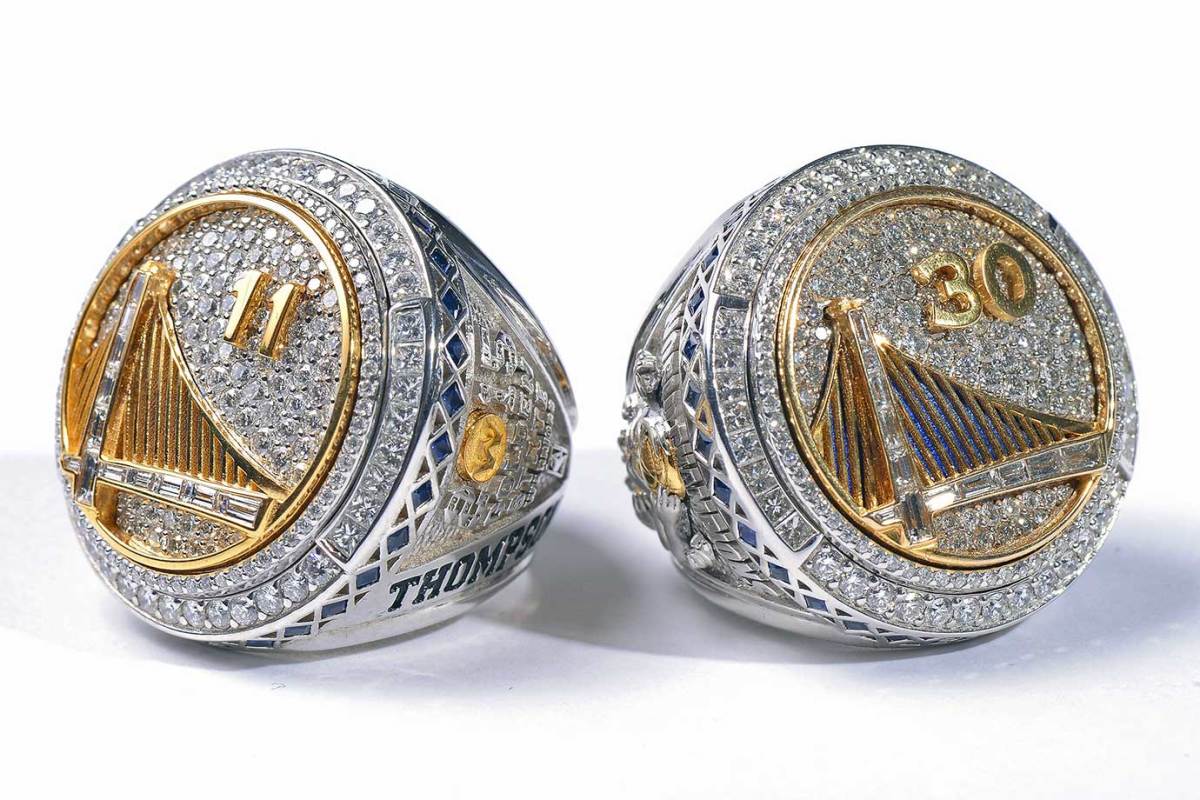
The Warriors took home these beauties after upending LeBron James and the Cavaliers in six games for their first title in 40 years.
2013-14 San Antonio Spurs
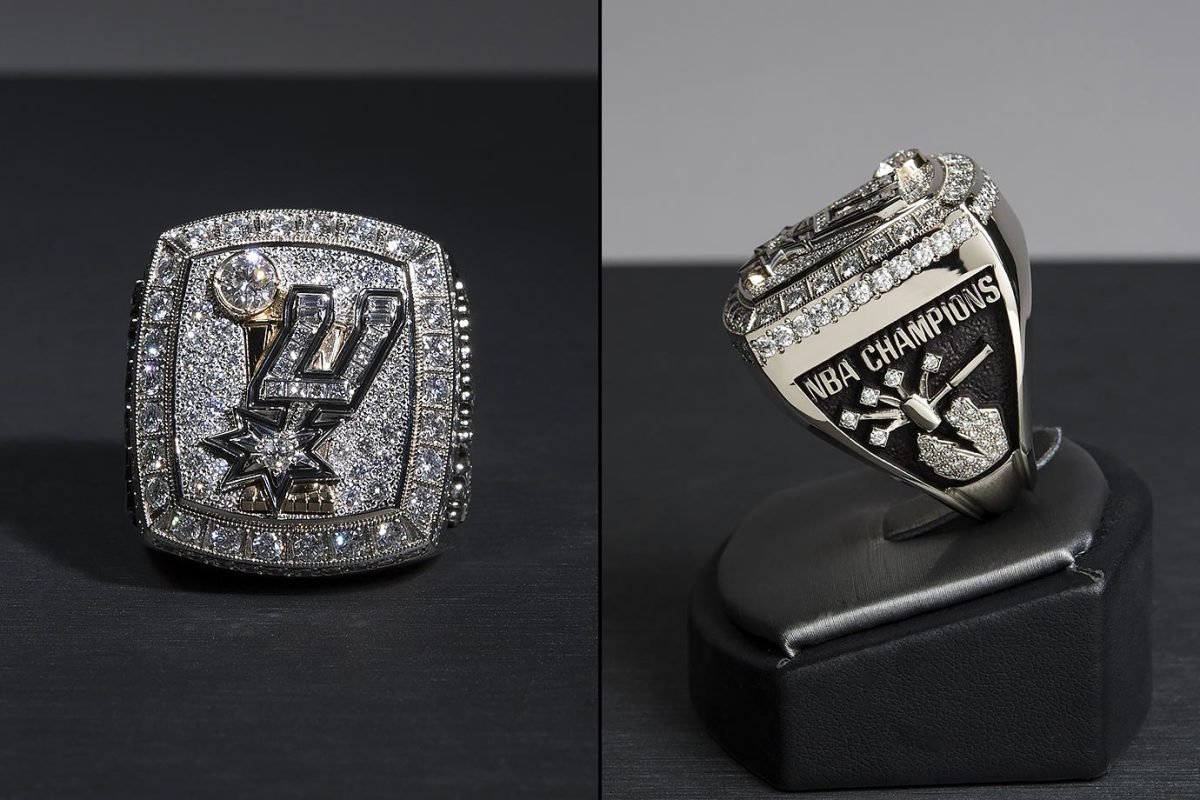
The Heat aimed to three-peat, but the Spurs had other ideas. Kawhi Leonard had a couple of breakout performances on his way to series MVP, and San Antonio ran away from Miami in five games.
2012-13 Miami Heat
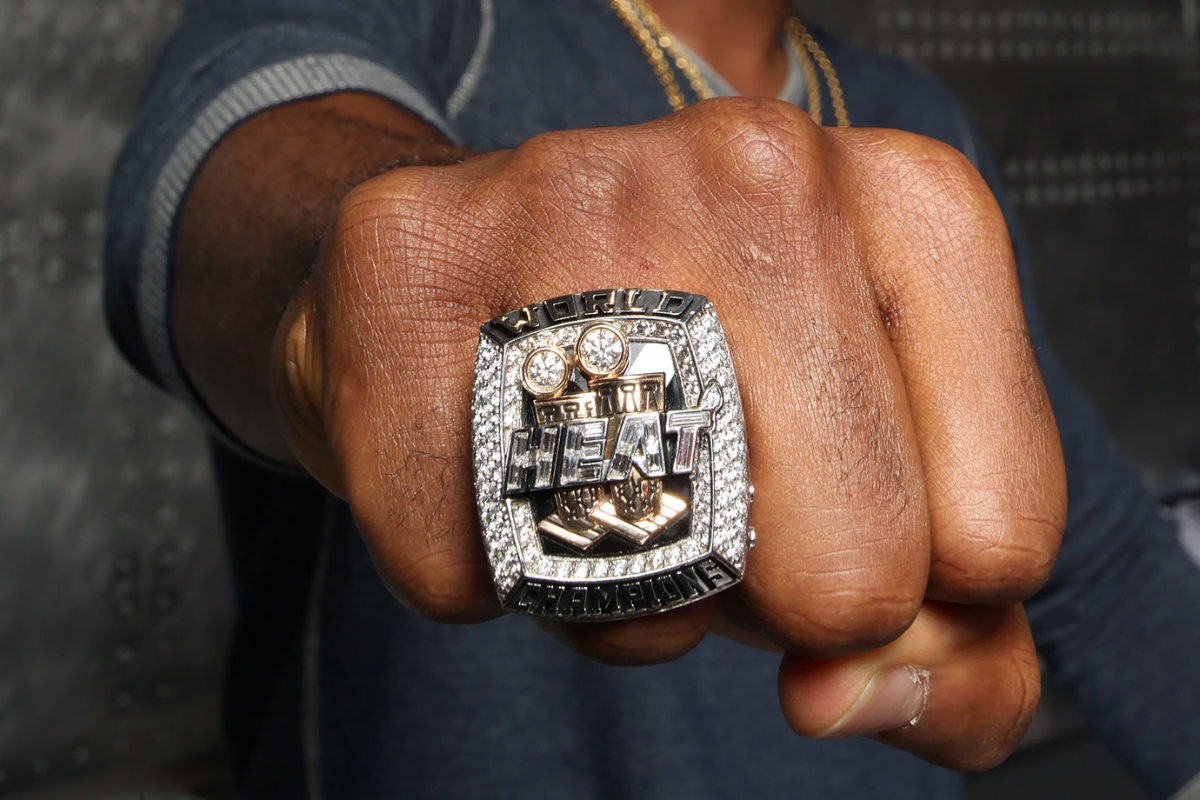
These rings would have never seen the light of day had Ray Allen not made one of the greatest shots in NBA Finals history. Thanks to Allen, the Heat rallied and defeated the Spurs in overtime in Game 6, and then won two days later to repeat as champs.
2011-12 Miami Heat
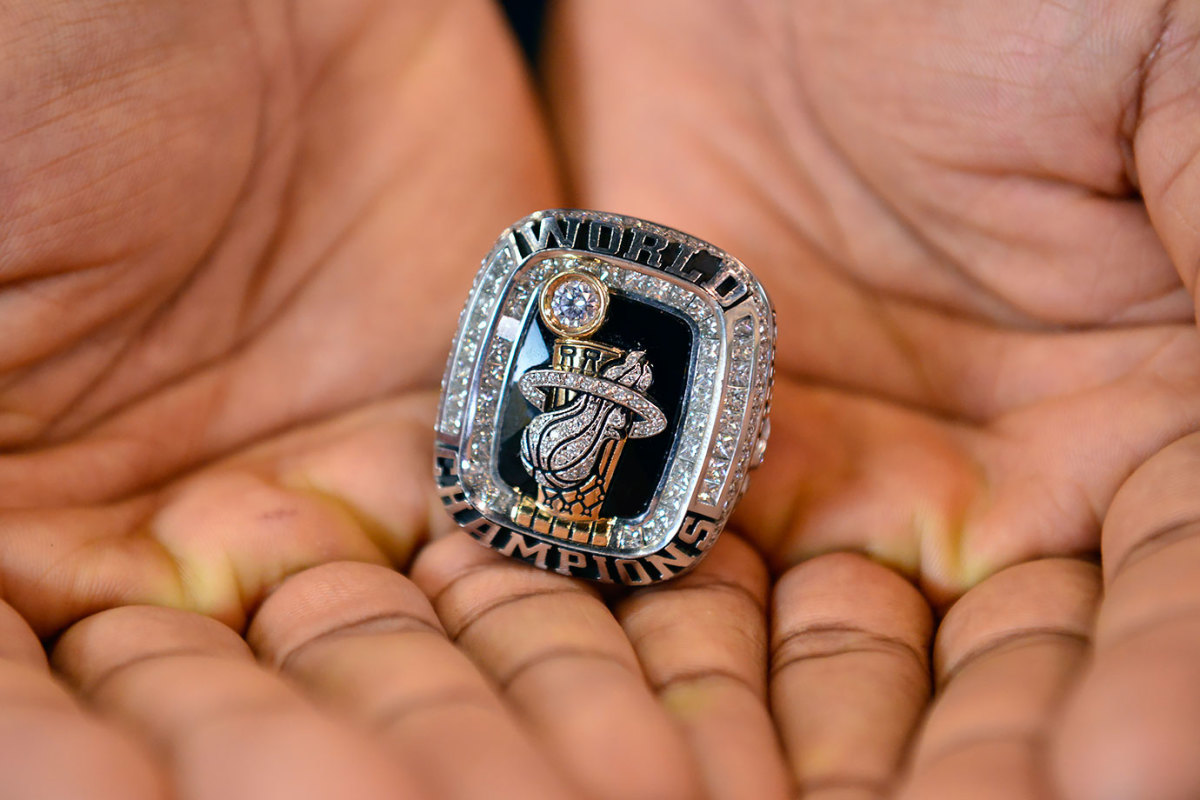
LeBron James got his first ring as the Heat overwhelmed the Thunder in five games. James averaged 28.6 points, 10.2 rebounds and 7.4 assists.
2010-11 Dallas Mavericks
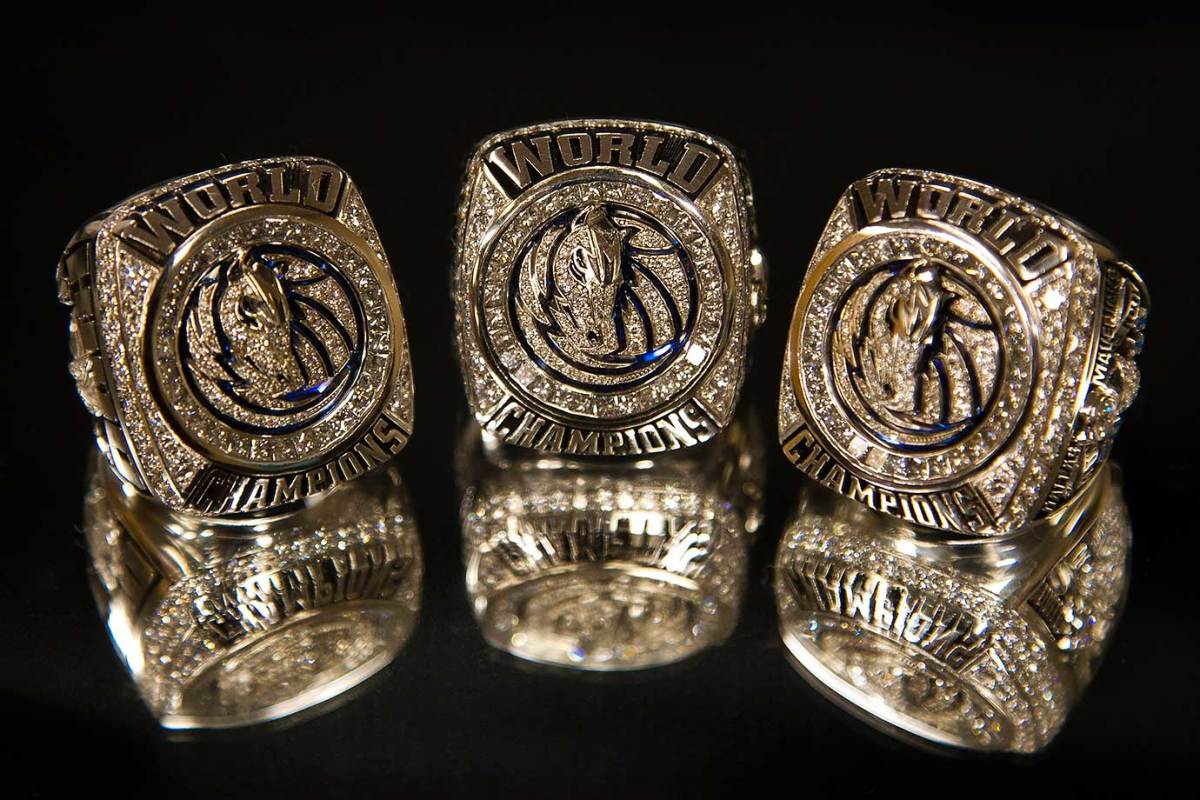
Dallas won three straight games to erase a 2-1 deficit and squash the newly formed Miami Big Three's title dreams. This was also the Mavericks' first NBA title in franchise history.
2009-10 Los Angeles Lakers
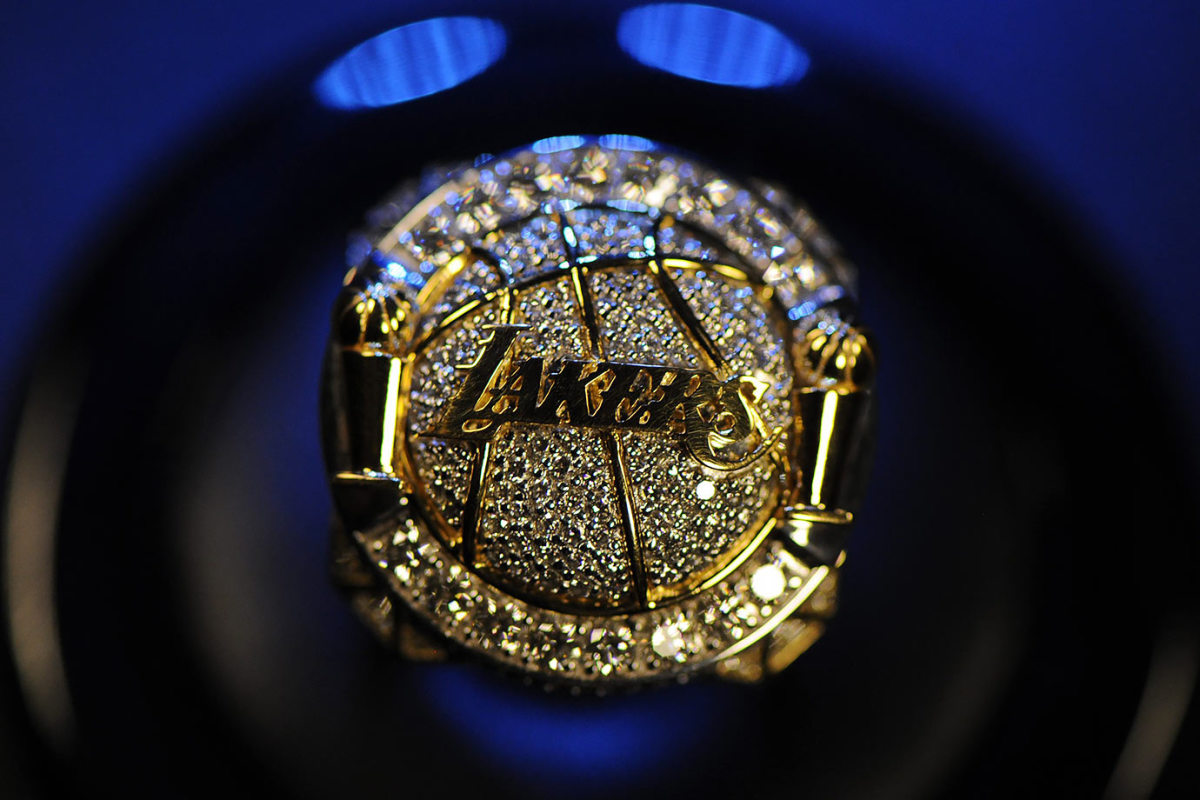
The Celtics held a 3-2 lead in this series, but the Lakers took care of business at the Staples Center in Game 6 and 7 to repeat as champs. This was the fifth and final set of rings for Los Angeles with Kobe Bryant.
2008-09 Los Angeles Lakers
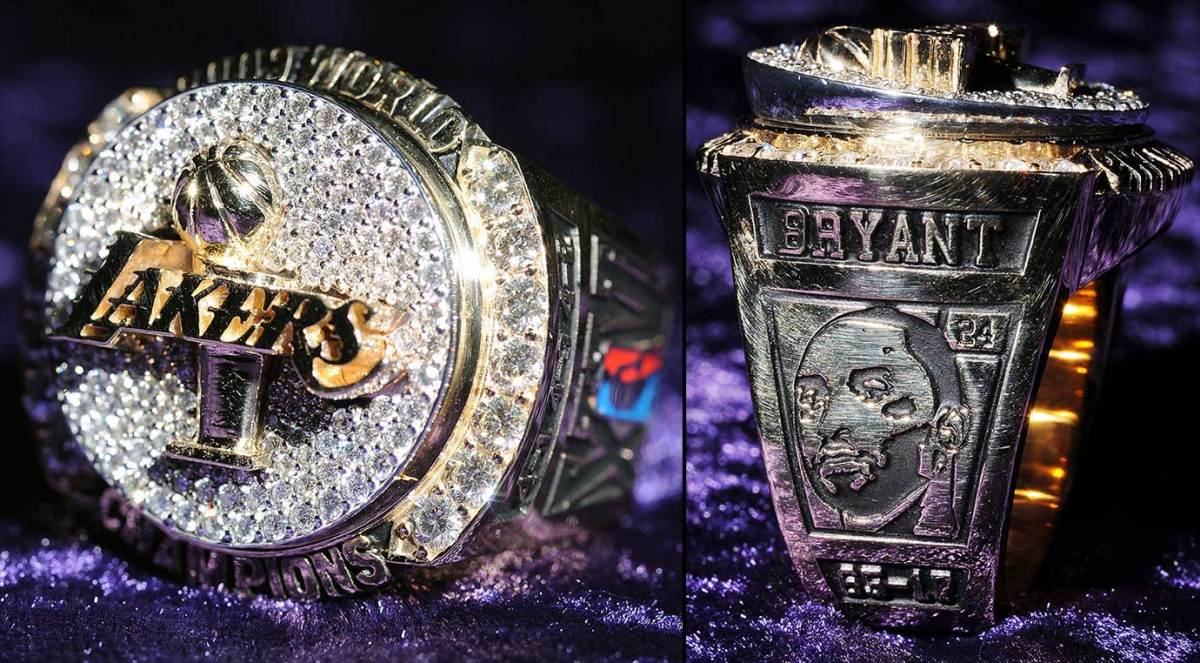
The Lakers survived in a pair of overtime battles and then pulled away from the Magic in Game 5 to win their first NBA title since 2002's three-peat. Kobe Bryant won series MVP with averages of 32.4 points and 7.4 assists.
2007-08 Boston Celtics
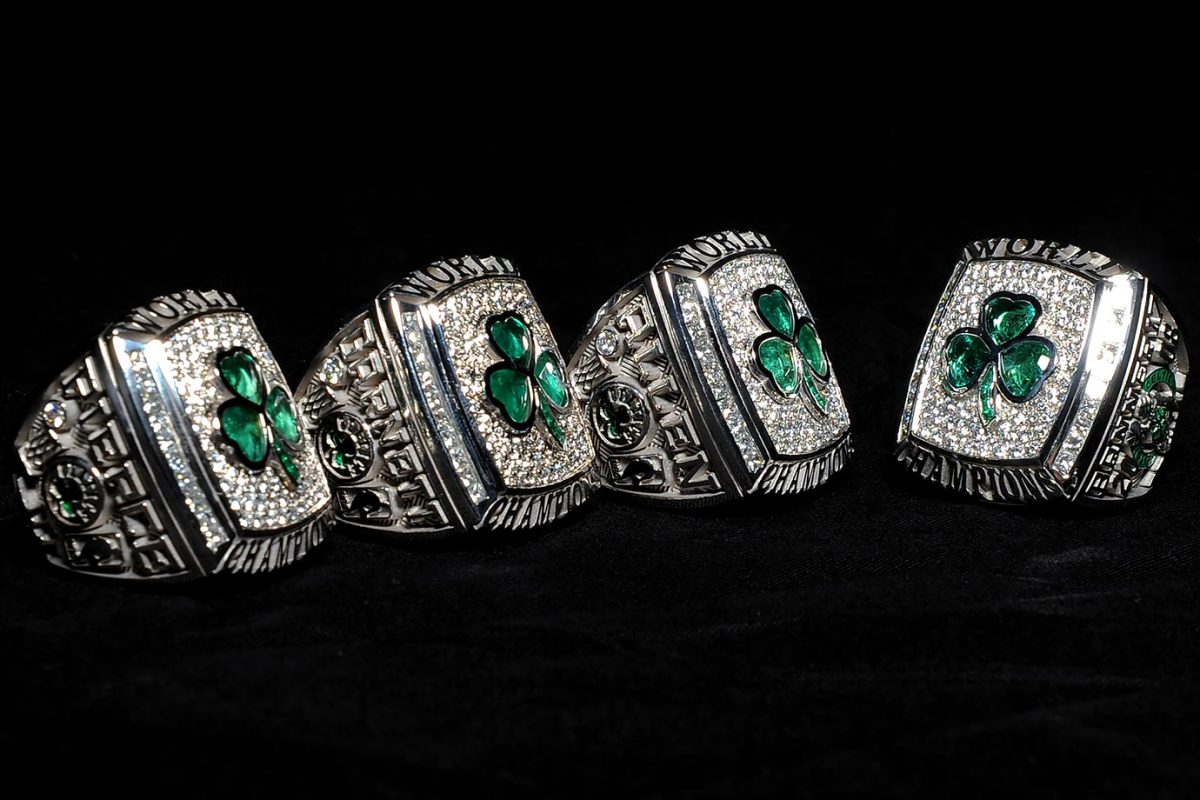
Acquiring Kevin Garnett and Ray Allen during the off-season paid off quickly for Boston. In their first year, Garnett and Allen teamed up with Paul Pierce to defeat the Lakers in six games and bring the Celtics new jewelry for the first time since 1986.
2006-07 San Antonio Spurs
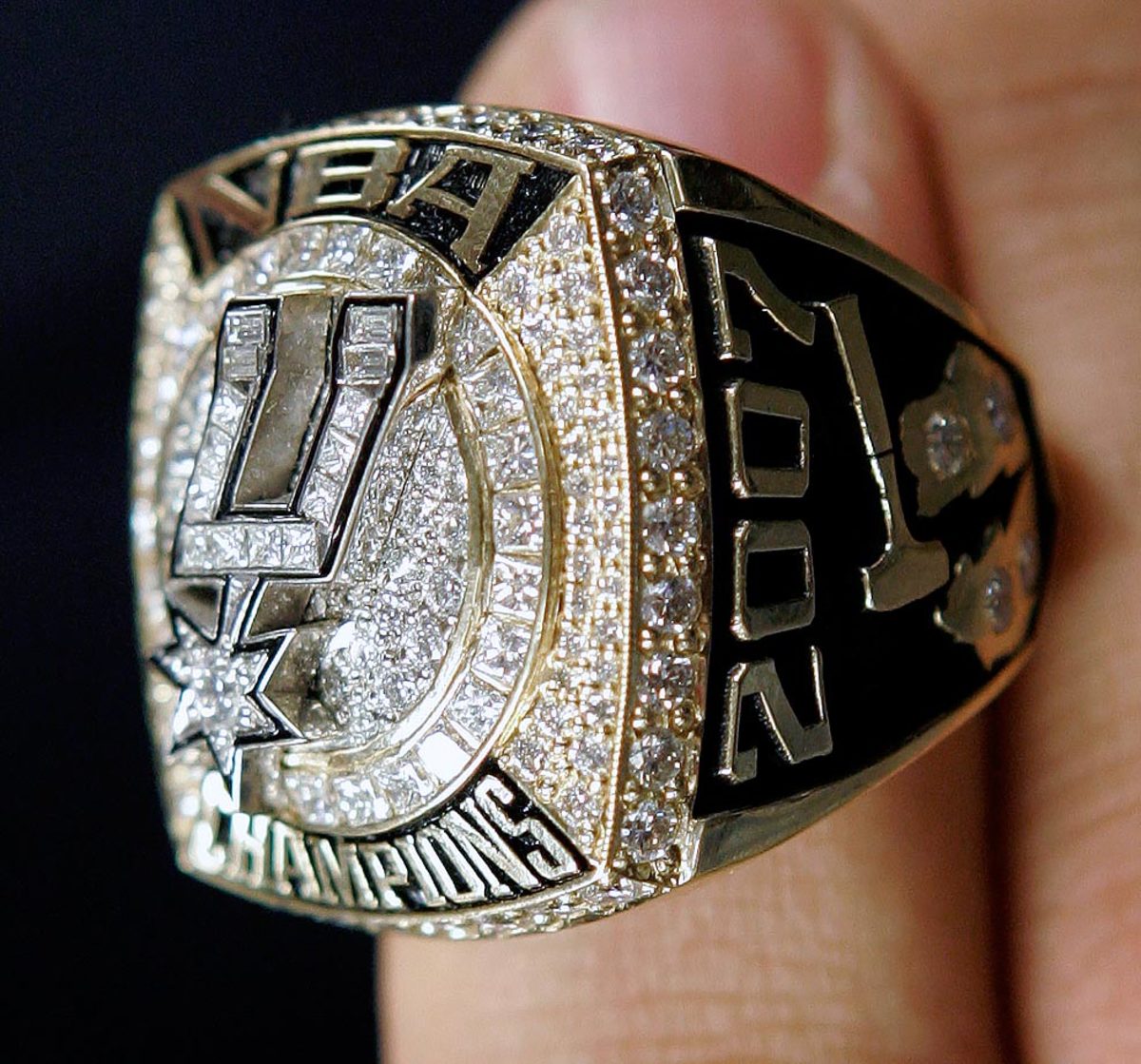
LeBron James' Cavaliers broke through to the finals, but they were no match for the Spurs, who completed the sweep for their third title in five years.
2005-06 Miami Heat
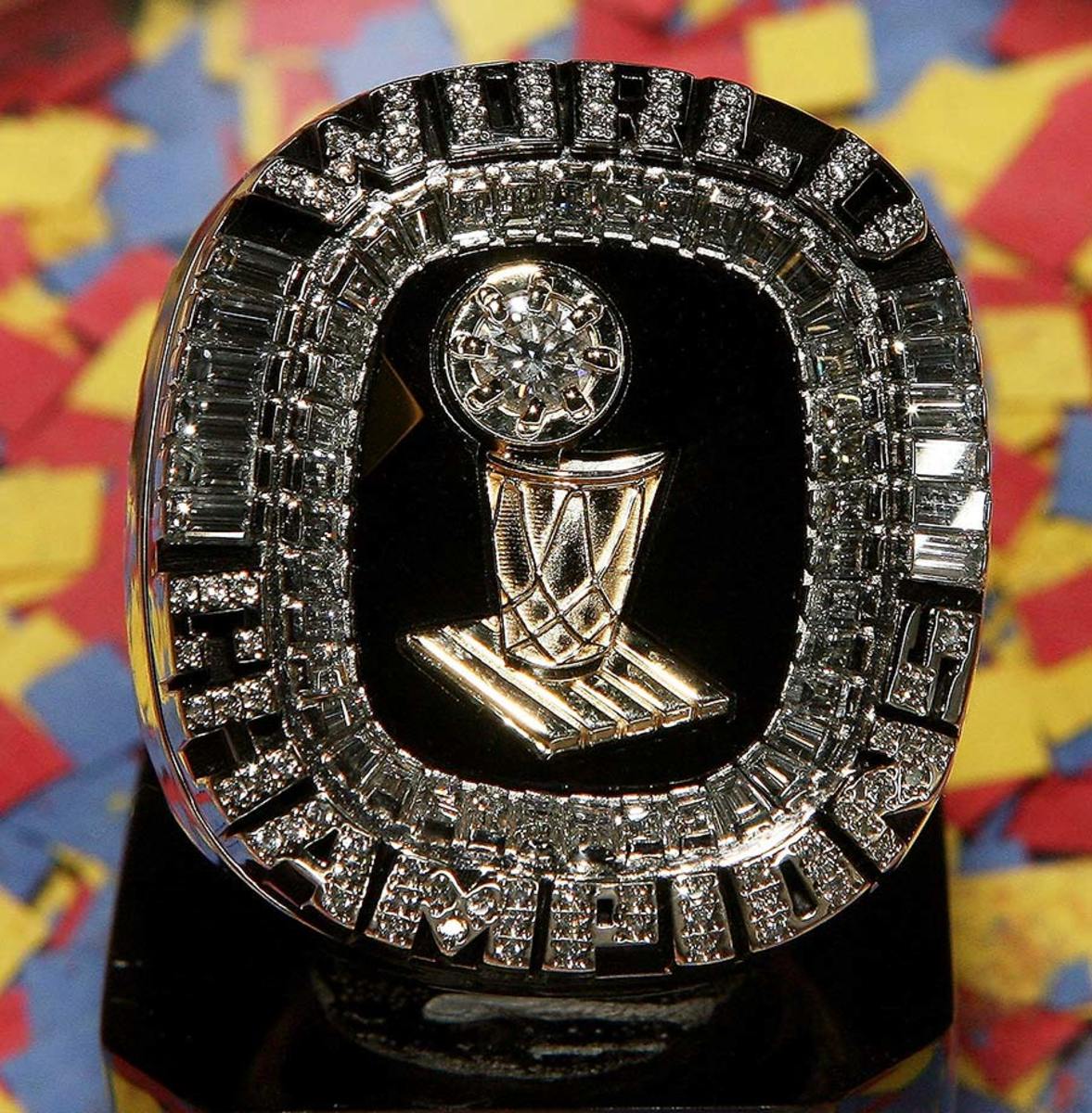
In their first-ever NBA Finals appearance, the Heat became the third team in league history to win a championship after trailing 0-2. Dwayne Wade averaged 39.3 points in the next four games as Miami won the series in six.
2004-05 San Antonio Spurs
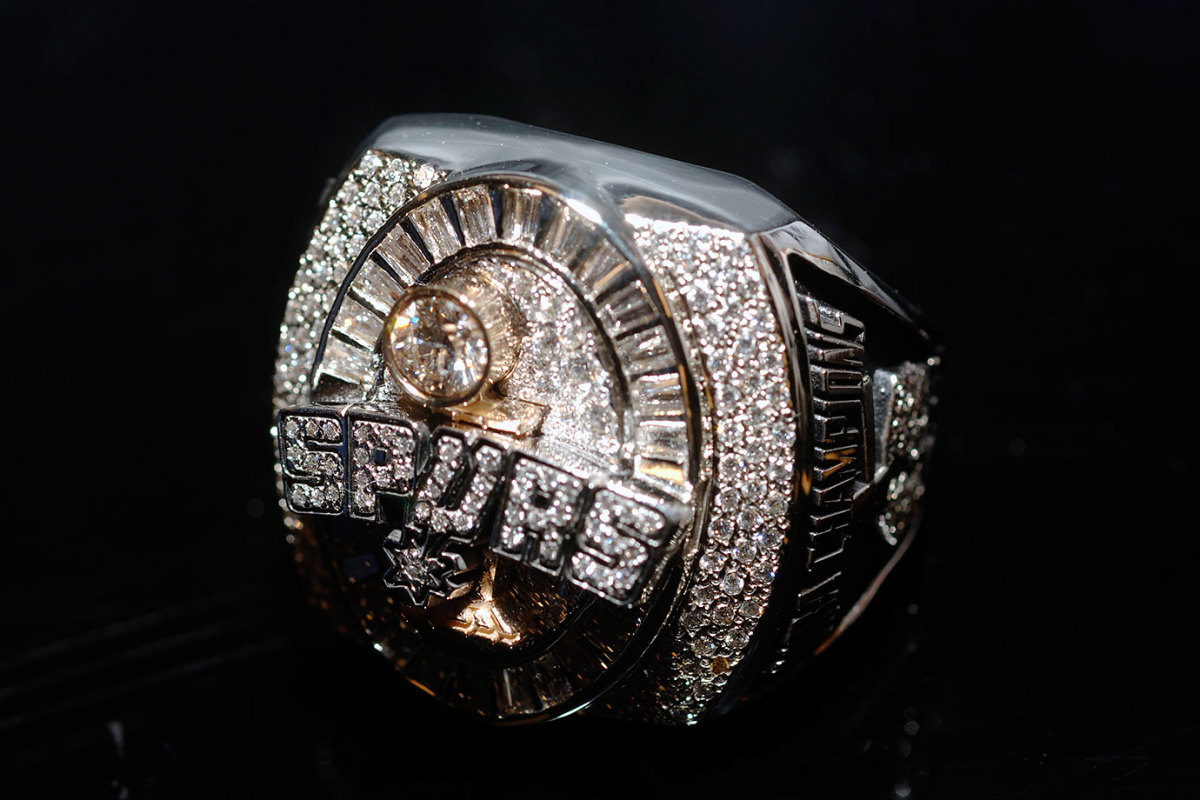
This series was almost as close as possible. The Spurs and the Pistons entered the fourth quarter of Game 7 tied, and Tim Duncan and Manu Ginobili led San Antonio in the fourth quarter to its third title under coach Greg Popovich.
2003-04 Detroit Pistons
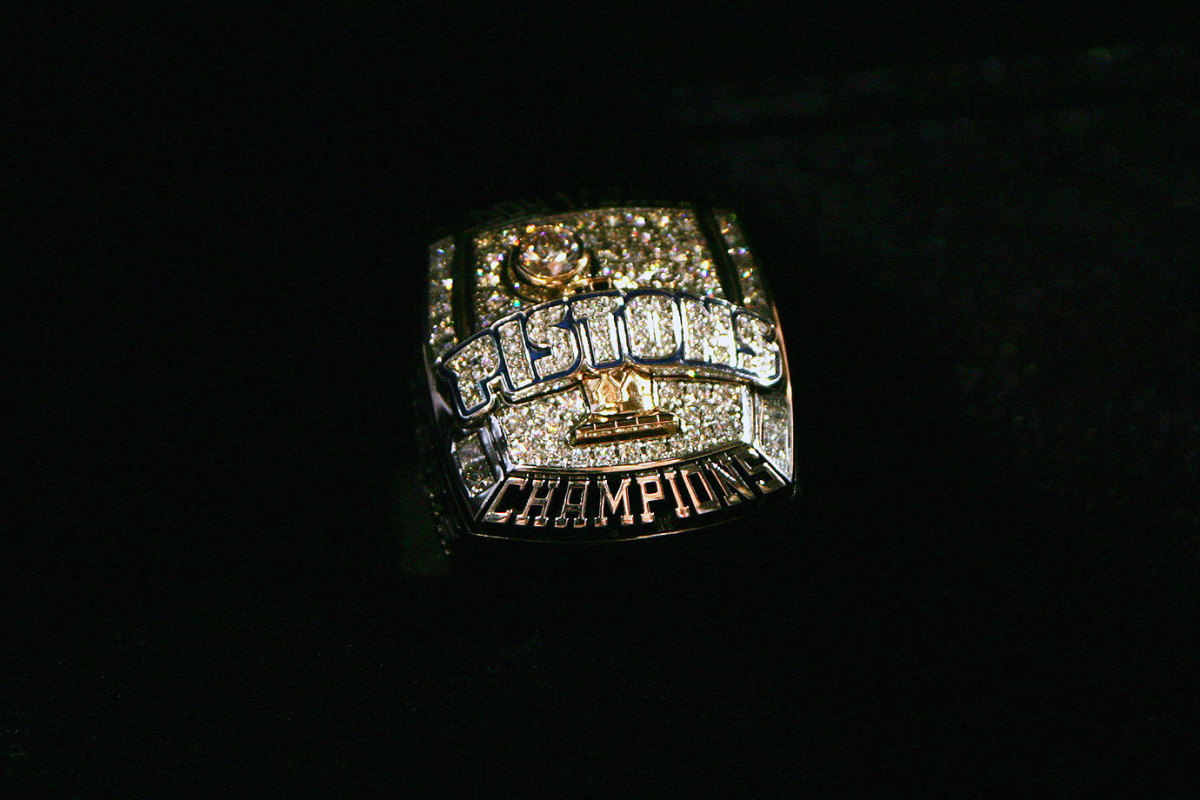
Larry Brown had an NCAA title ring, and a 4-1 victory over the Lakers gave the coach his first NBA championship ring. Brown remains the only coach to win an NCAA and NBA title.
2002-03 San Antonio Spurs
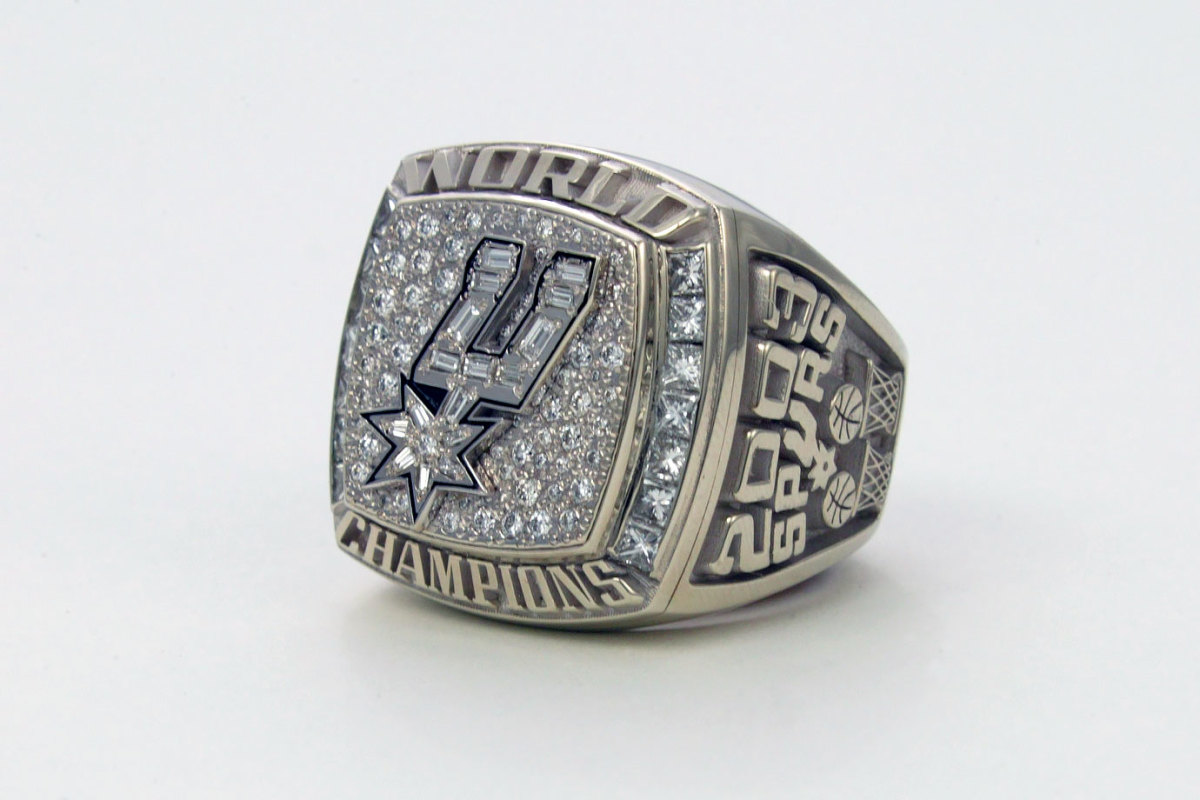
In one of the great all-time playoff performances, Tim Duncan fell barely shy of a quadruple double with 21 points, 20 rebounds, 10 assists and eight blocks in the series-clinching Game 6.
2001-02 Los Angeles Lakers
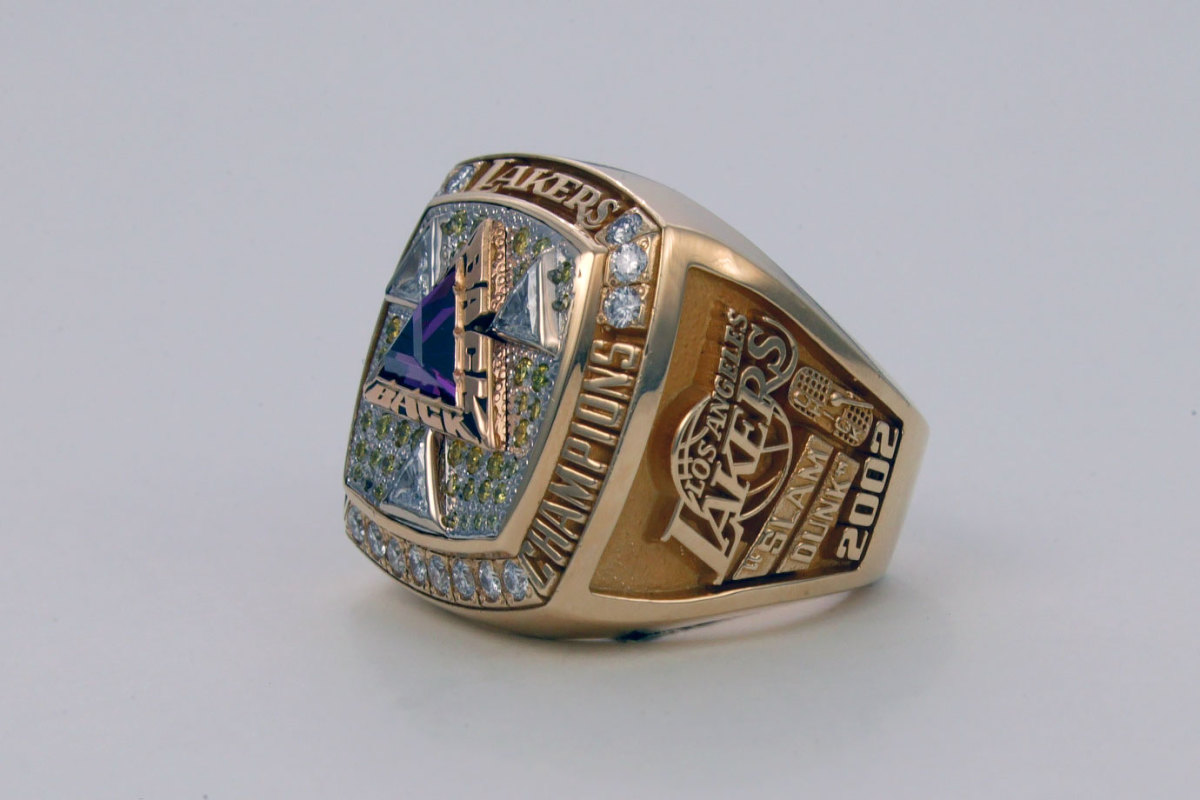
The Nets did not put up much resistance as the Lakers completed a 4-0 sweep for their third straight title, giving coach Phil Jackson his ninth NBA title in 12 seasons.
2000-01 Los Angeles Lakers
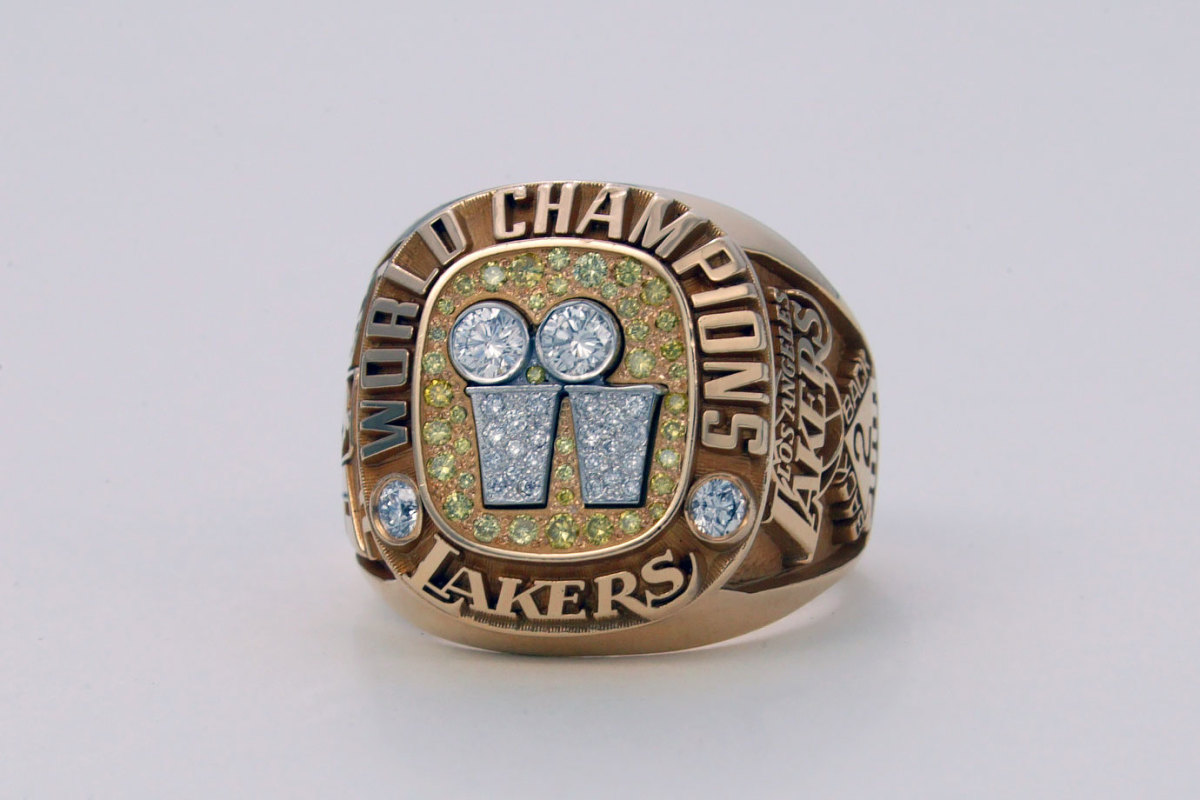
Allen Iverson carried the 76ers to a Eastern Conference title and Game 1 victory against the Lakers, but Kobe Bryant and Shaquille O'Neal were too much for The Answer. Los Angeles won the next four games, including three straight in Philadelphia, to win its second straight championship.
1999-00 Los Angeles Lakers
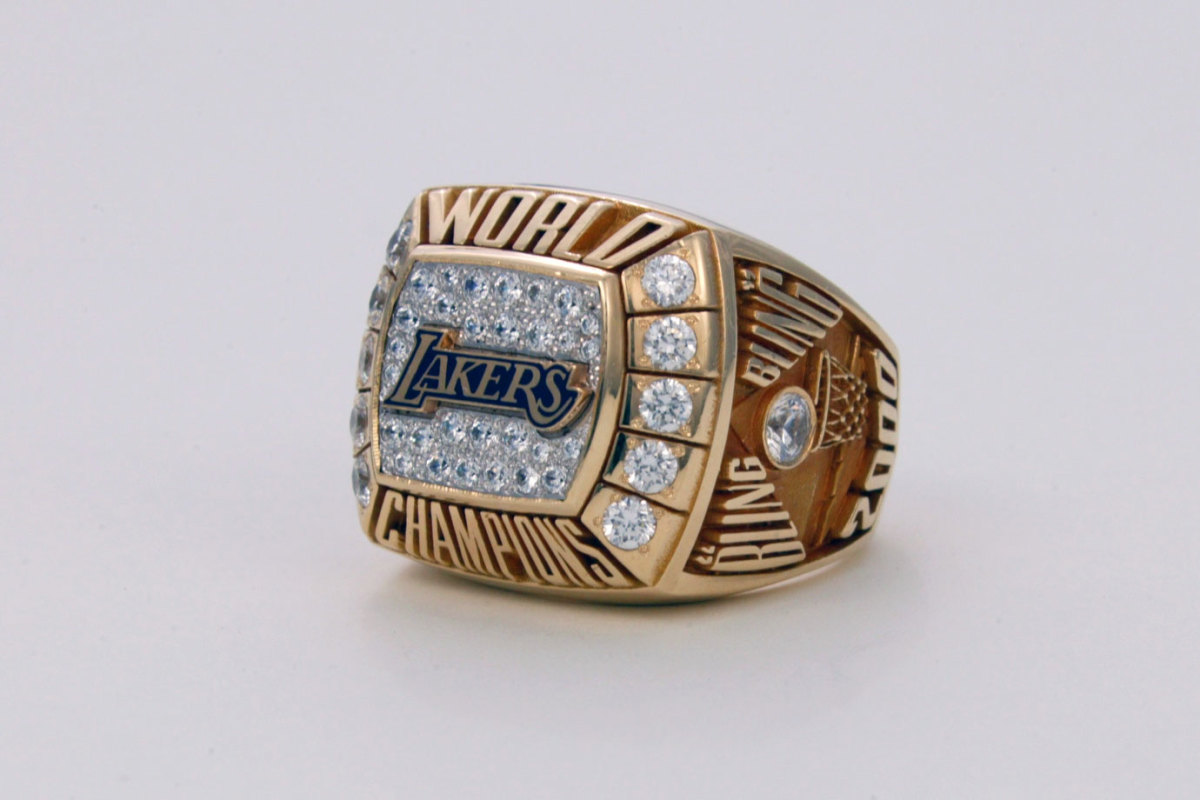
In his return to coaching, Phil Jackson guided the Lakers to a 4-2 series victory against the Pacers, coached by Larry Bird. Shaquille O'Neal averaged 36.3 points and 12.3 rebounds, earning his first of three straight Finals MVPs.
1998-99 San Antonio Spurs
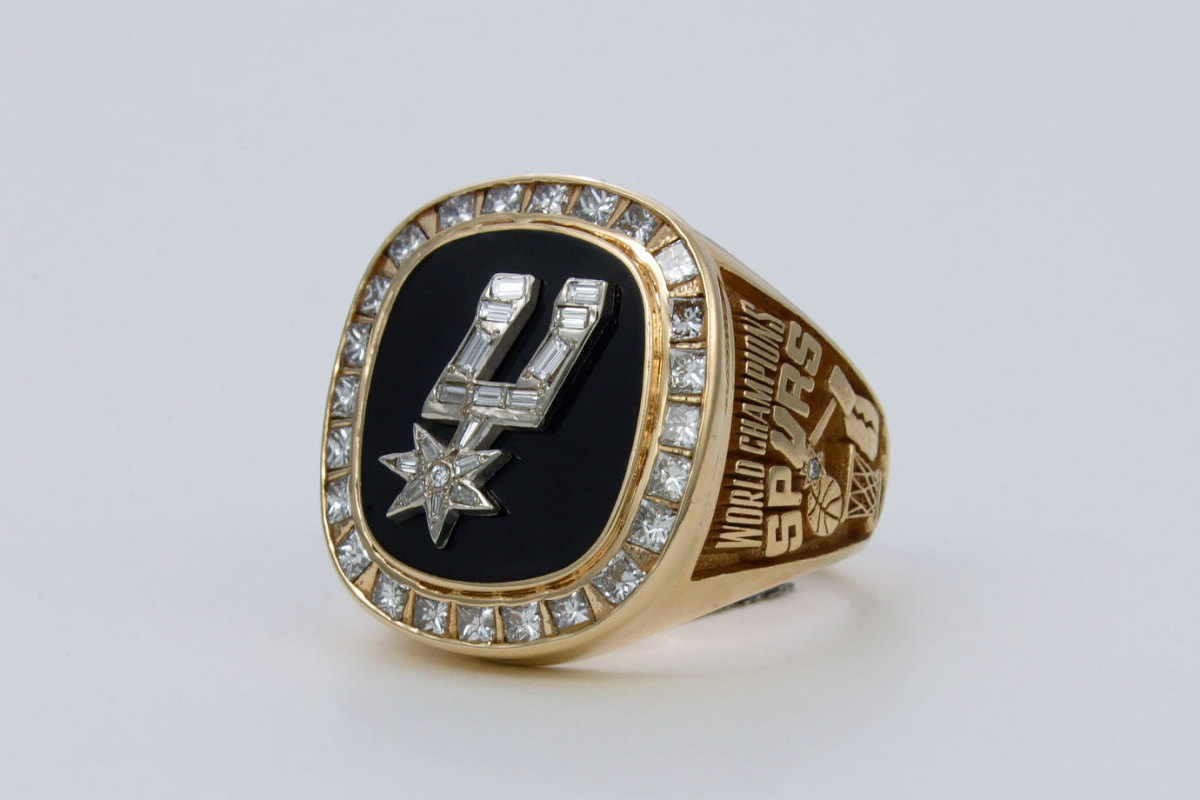
In a battle of dominant frontcourts, David Robinson and Tim Duncan bested Patrick Ewing and Larry Johnson as the Spurs defeated the Knicks in five games for their first NBA title.
1997-98 Chicago Bulls
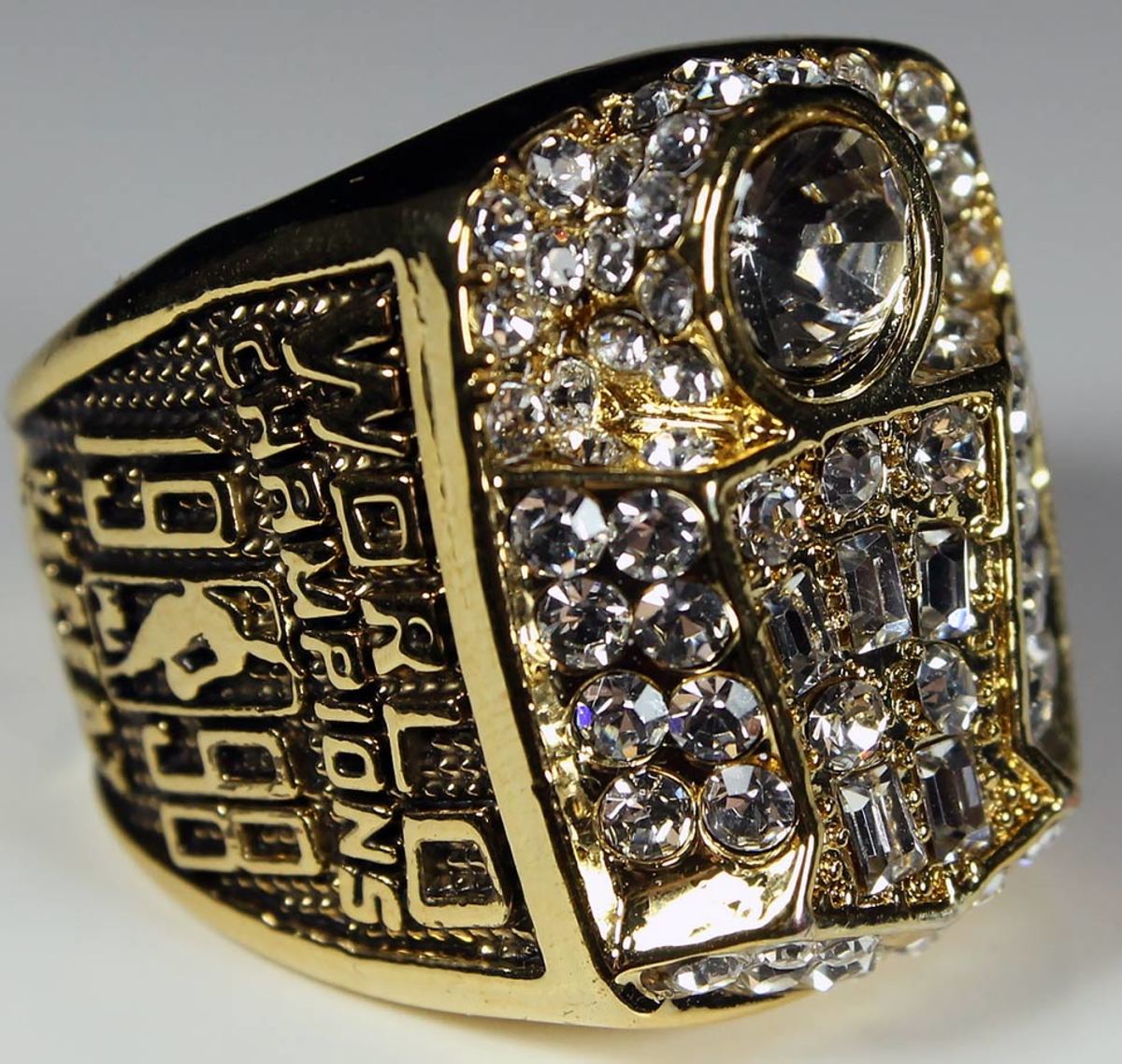
Michael Jordan's jump shot with 5.6 seconds remaining in Game 6 gave the Bulls their second three-peat of the decade. Since then, Chicago has no NBA Finals appearances and only one conference finals appearance.
1996-97 Chicago Bulls
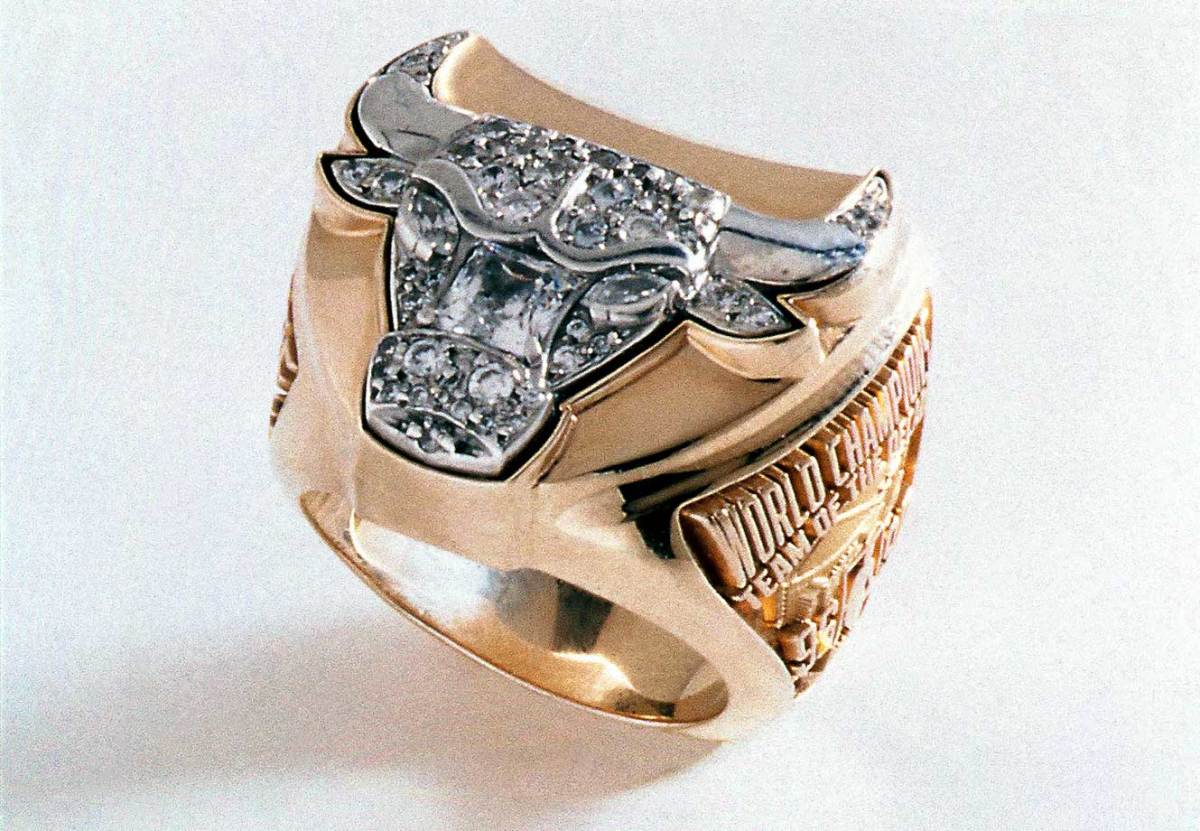
In a series featuring six Hall of Fame players, the Bulls defeated the Jazz in six games as Michael Jordan fought through food poisoning to lead Chicago to wins in Game 5 and Game 6.
1995-96 Chicago Bulls
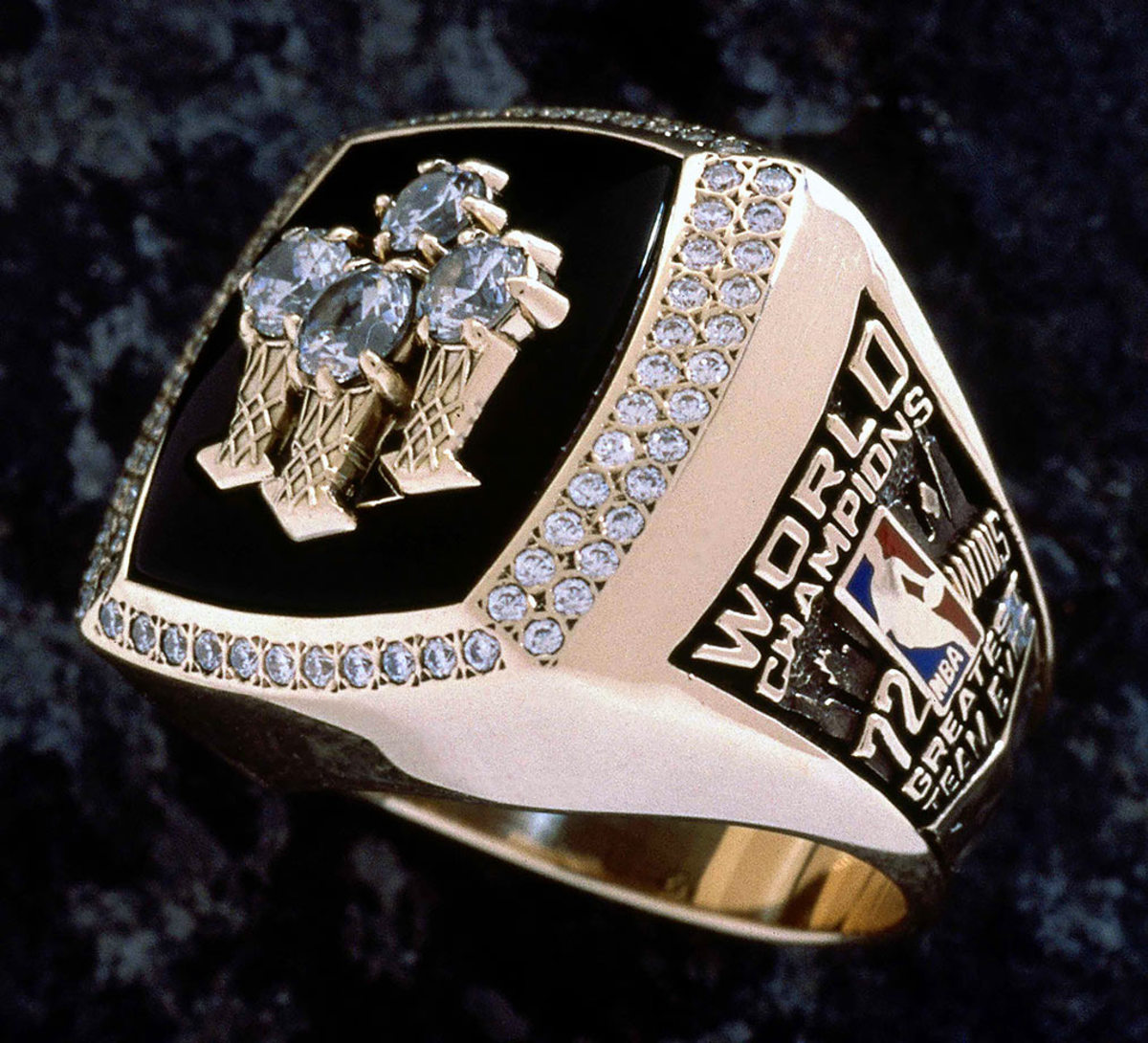
Dennis Rodman tied an NBA Finals record in Game 2 with 11 offensive rebounds against Seattle and then did it again in Game 6, the series clincher, but Michael Jordan was once again the no-brainer series MVP, averaging 27.3 points 5.3 rebounds and 4.2 assists.
1994-95 Houston Rockets
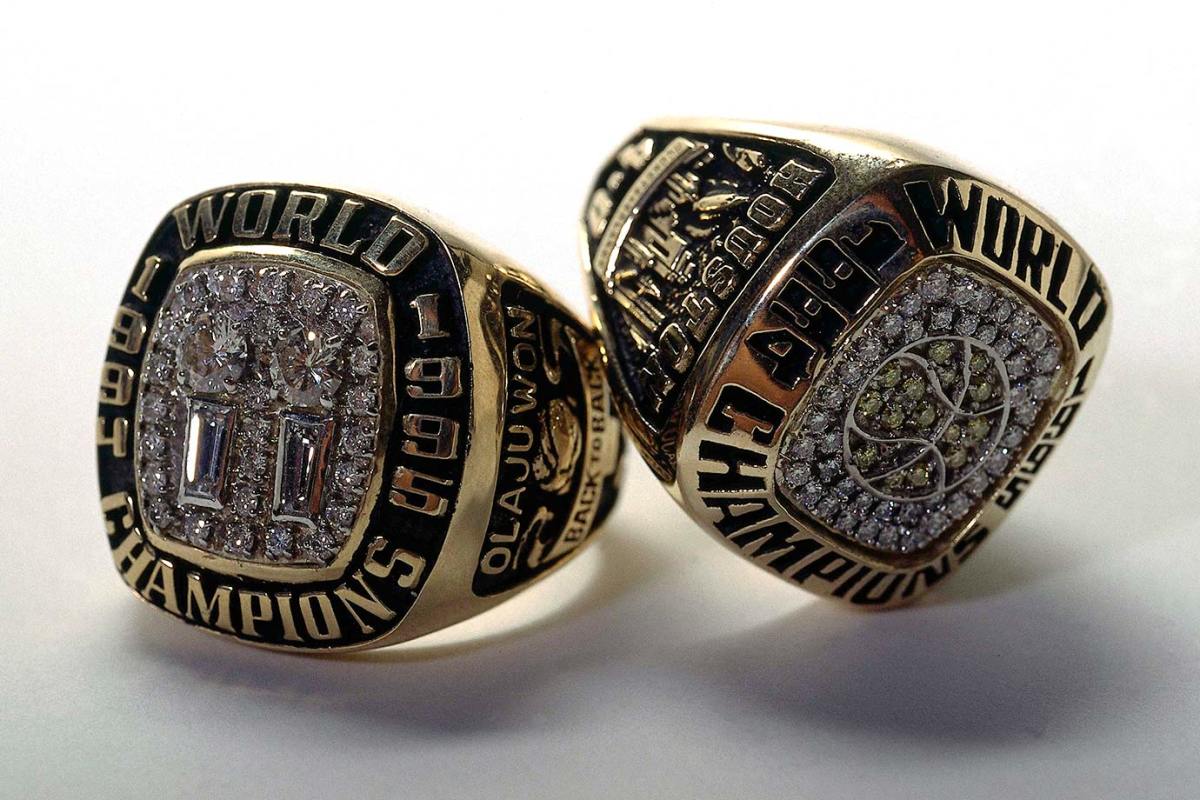
Hakeem Olajuwon taught young Shaquille O'Neal a few lessons in this series as the Rockets swept the Magic for their second consecutive NBA title. The Rockets were the first No. 6 seed to win a Finals series.
1993-94 Houston Rockets
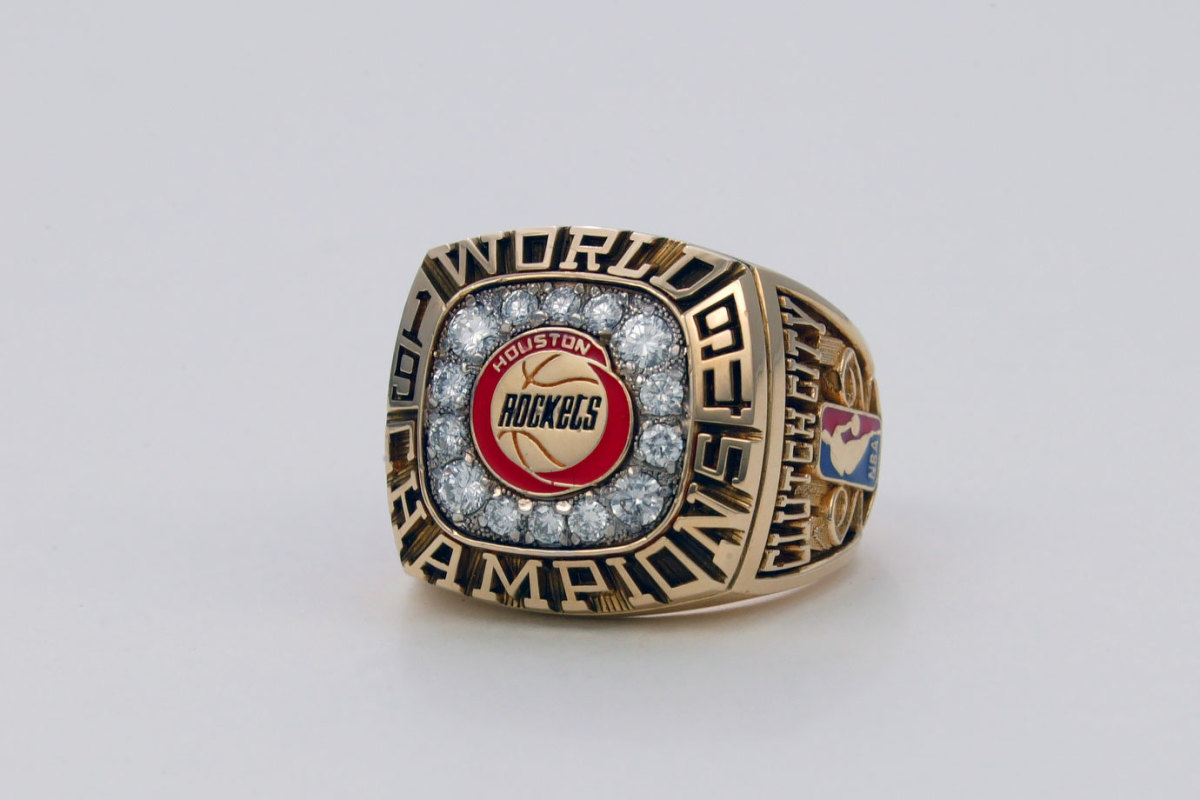
The Rockets ended a five-season title drought for the Western Conference as Hakeem Olajuwon charged victories in Game 6 and Game 7 in Houston.
1992-93 Chicago Bulls
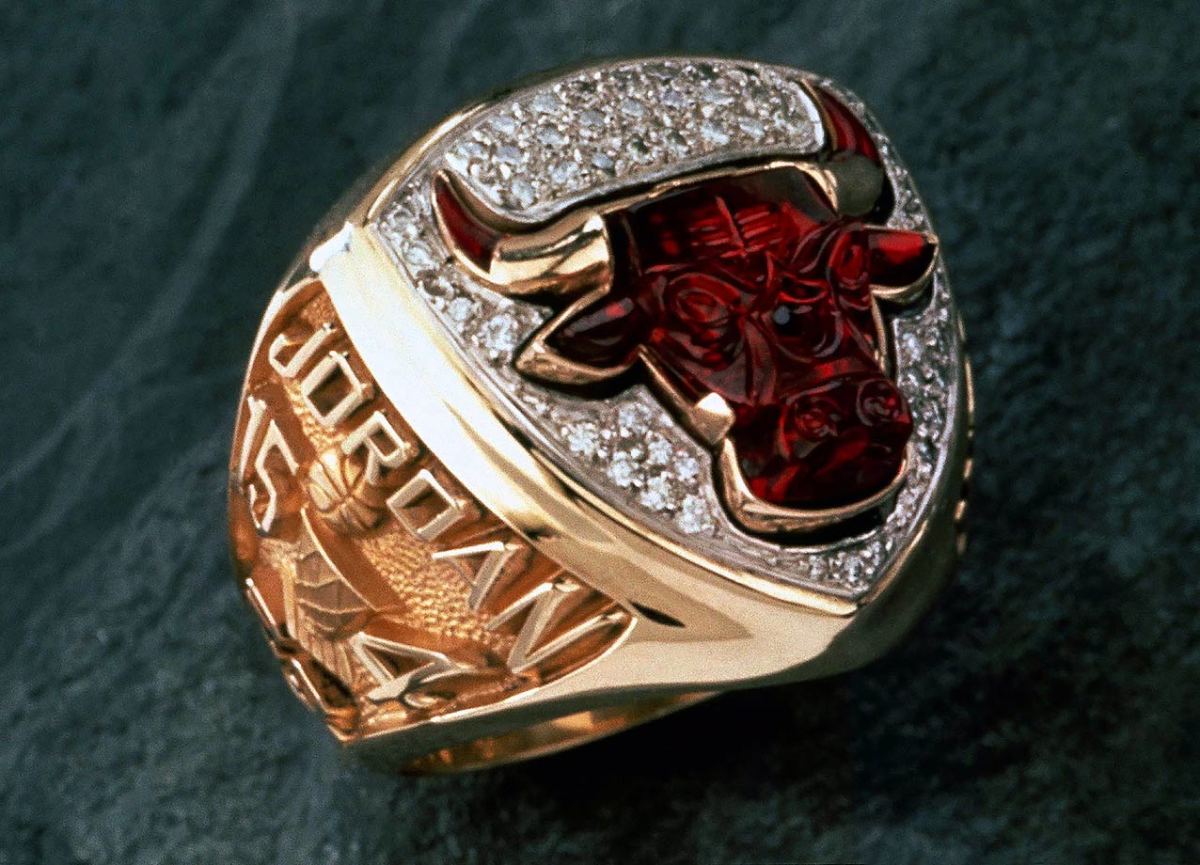
The Bulls became the first team to three-peat since Bill Russell's Celtics in the 1960s. Chicago defeated Phoenix in six games, leaving Charles Barkley without a ring.
1991-92 Chicago Bulls
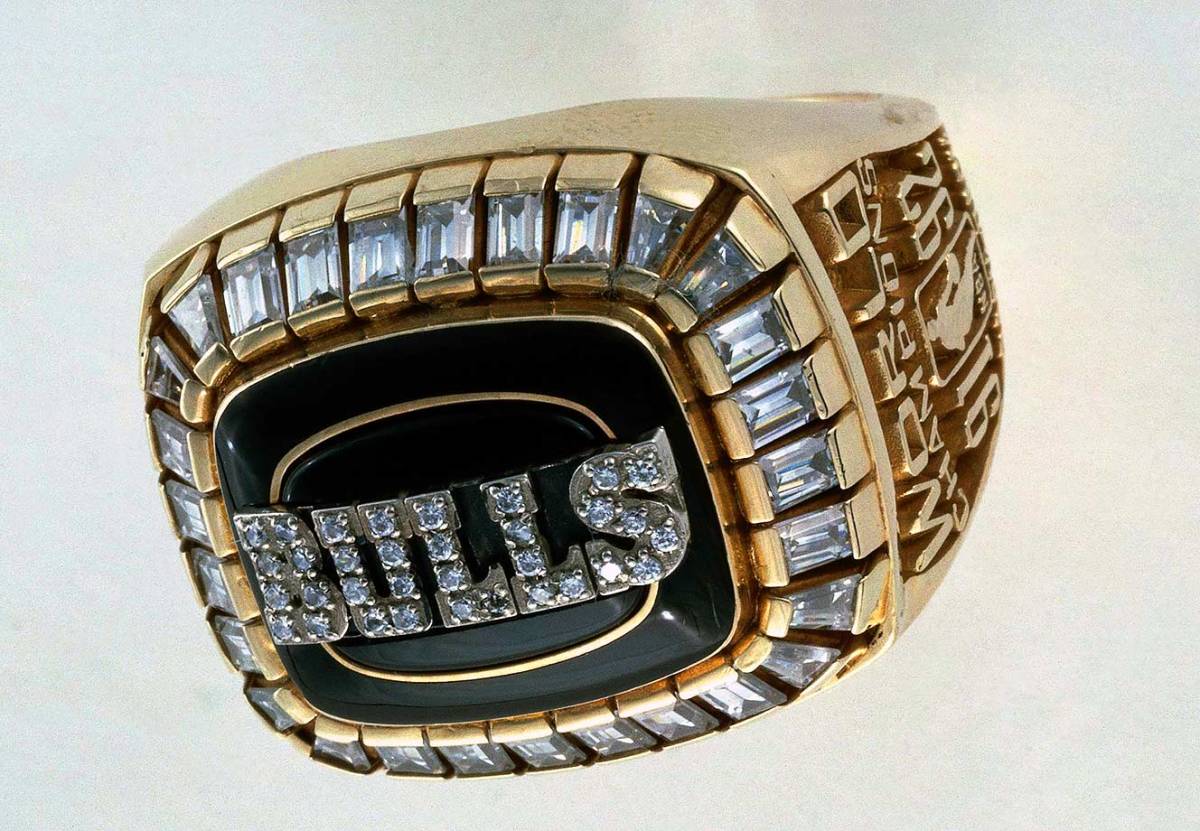
Michael Jordan shrugged his way to a NBA Finals record six first-half three-pointers in Game of 1 of this series, and the Bulls went on to win in six games.
1990-91 Chicago Bulls
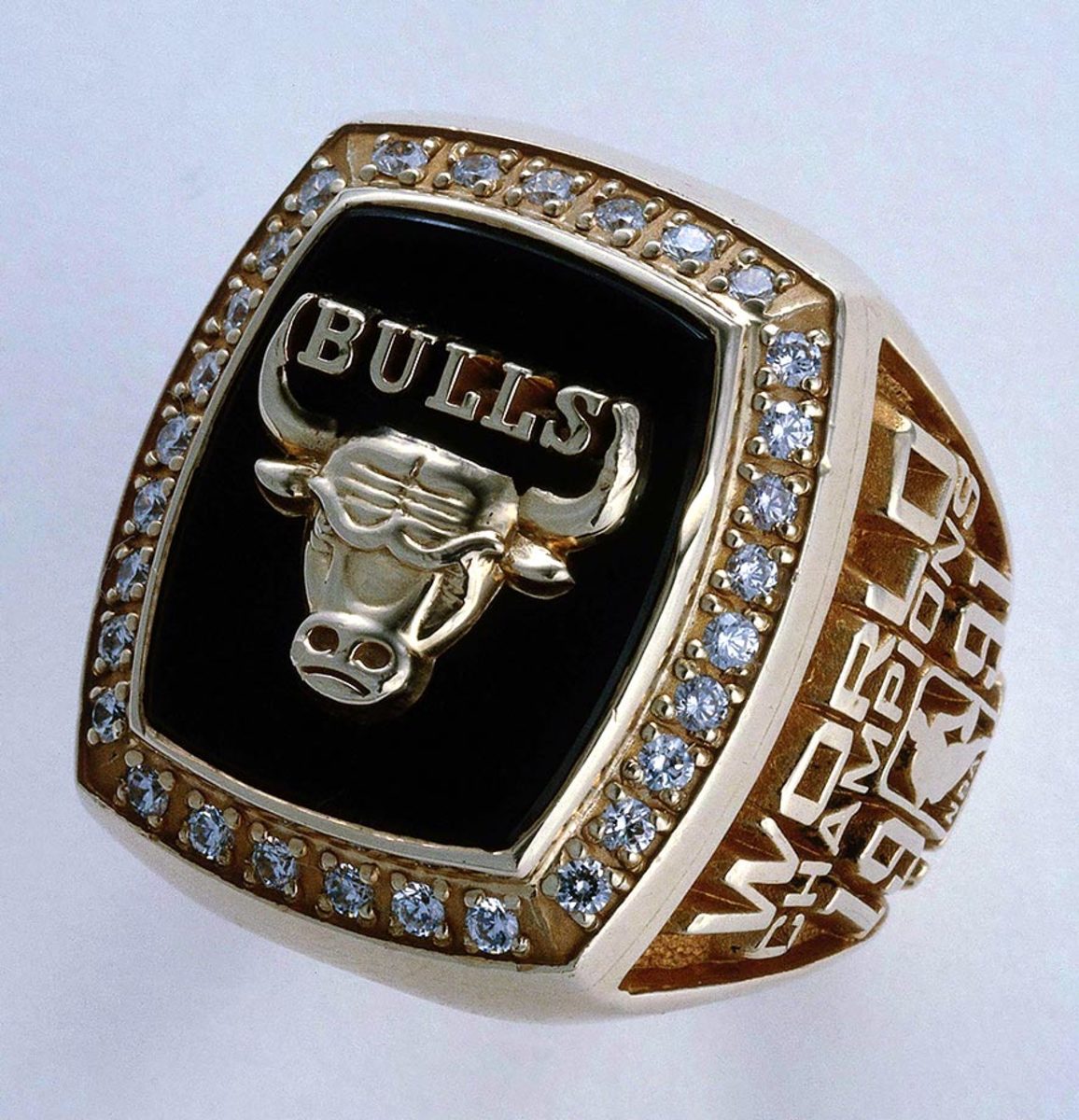
The Bulls recorded their first-ever NBA title as Michael Jordan led the way averaging 31.2 points, 11.4 assists, 2.8 steals and 1.4 blocks to defeat the Showtime Lakers in five games.
1989-90 Detroit PIstons
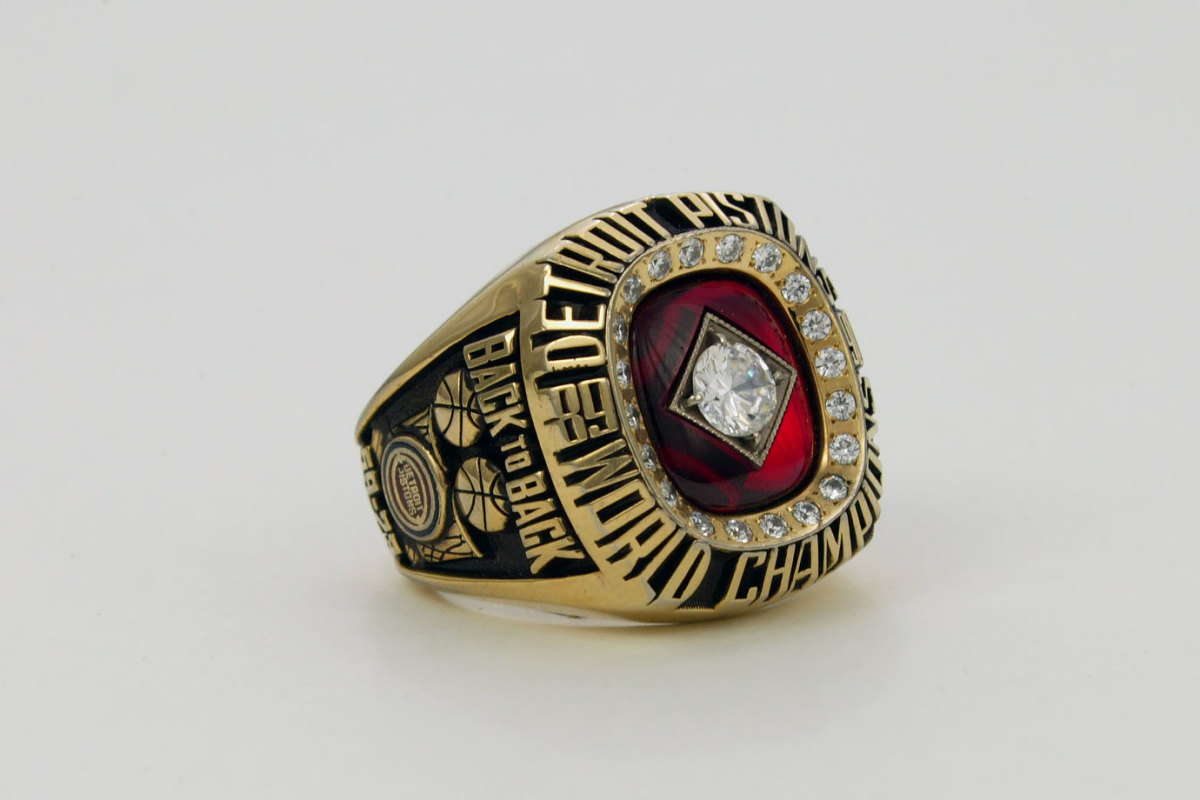
For the first time since 1979, the NBA Finals did not include at least one of the Celtics or the Lakers. The Bad Boy Pistons faced Clyde Drexler and the Trail Blazers, winning in five games for their second straight championship.
1988-89 Detroit PIstons
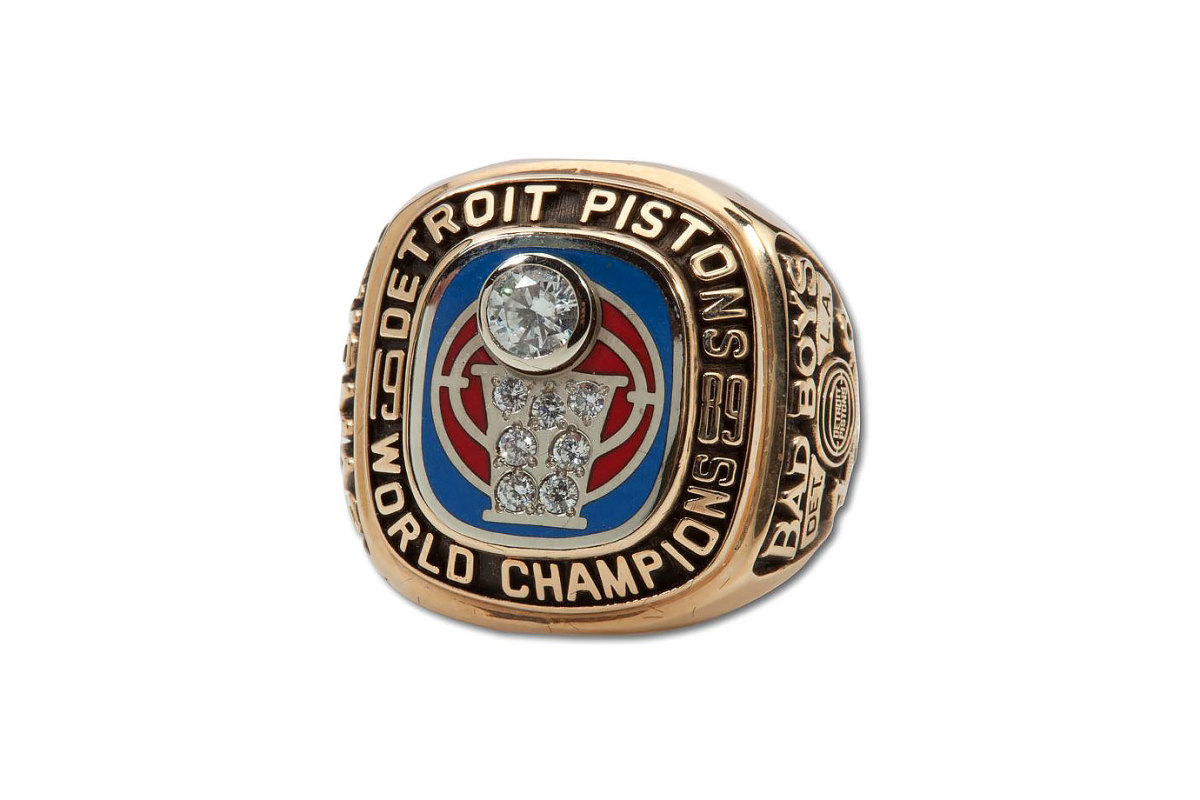
The Lakers led entering the fourth quarter three times during this series but could never hold on as the Pistons swept them in four games.
1987-88 Los Angeles Lakers
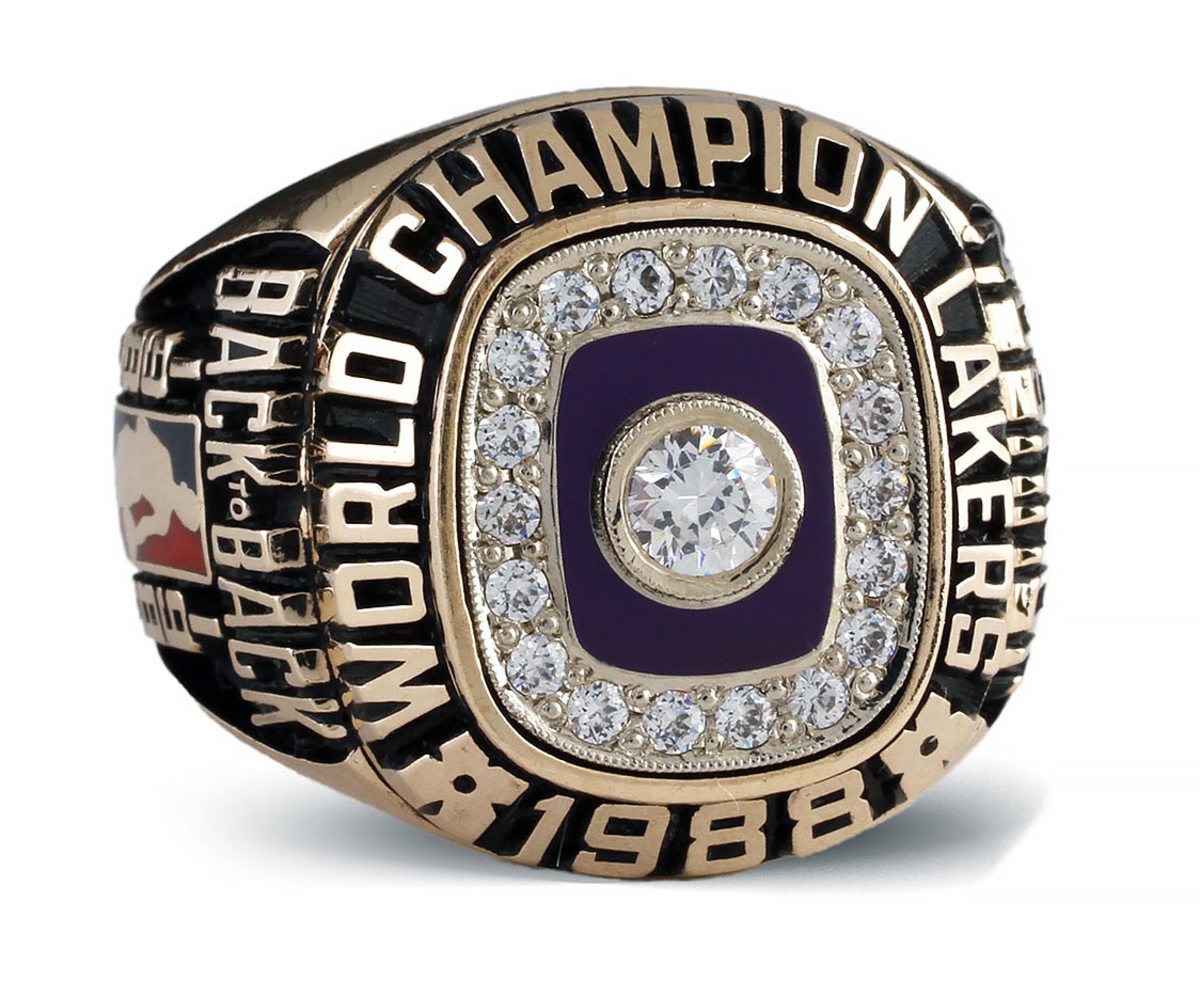
This time, the Lakers got the best of the Pistons in a thrilling seven games series where the final two games were decided by a combined four points.
1986-87 Los Angeles Lakers
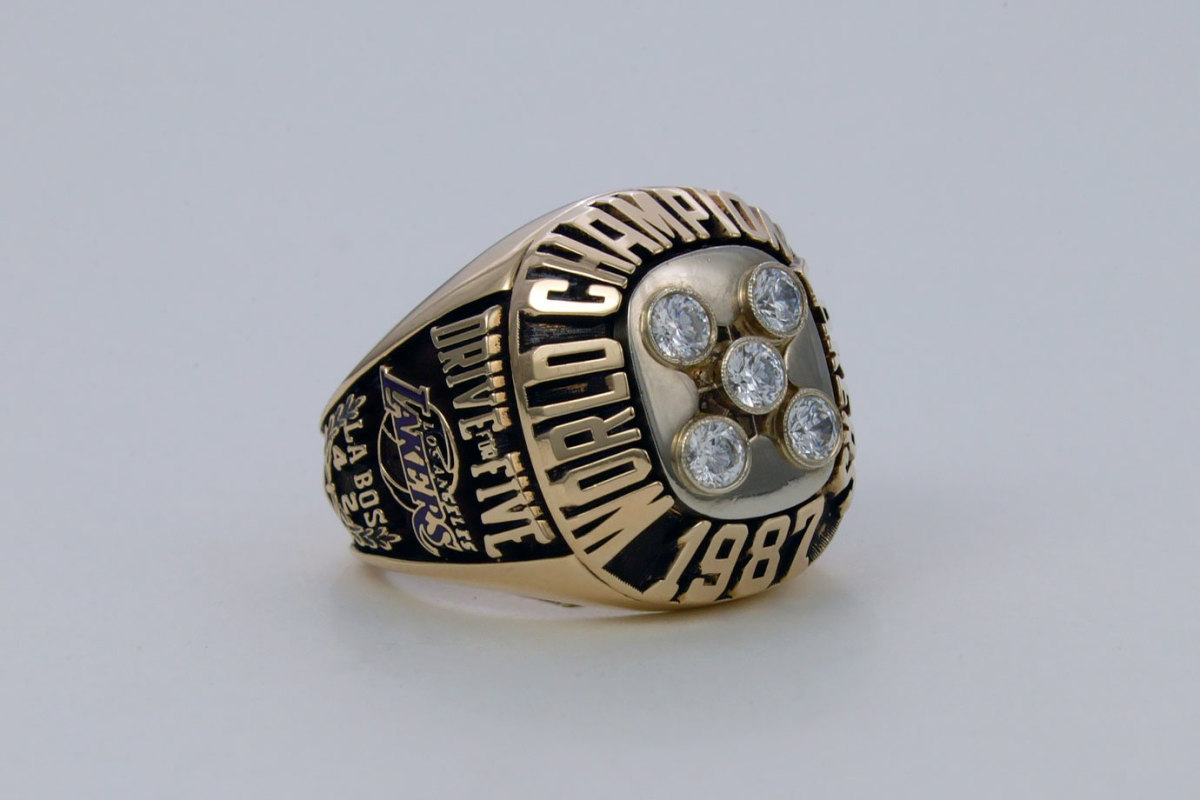
In a high-scoring series, the Lakers and the Celtics each broke the century in the first five games. Then Los Angeles held Boston to 93 points to win the series in Game 6.
1985-86 Boston Celtics
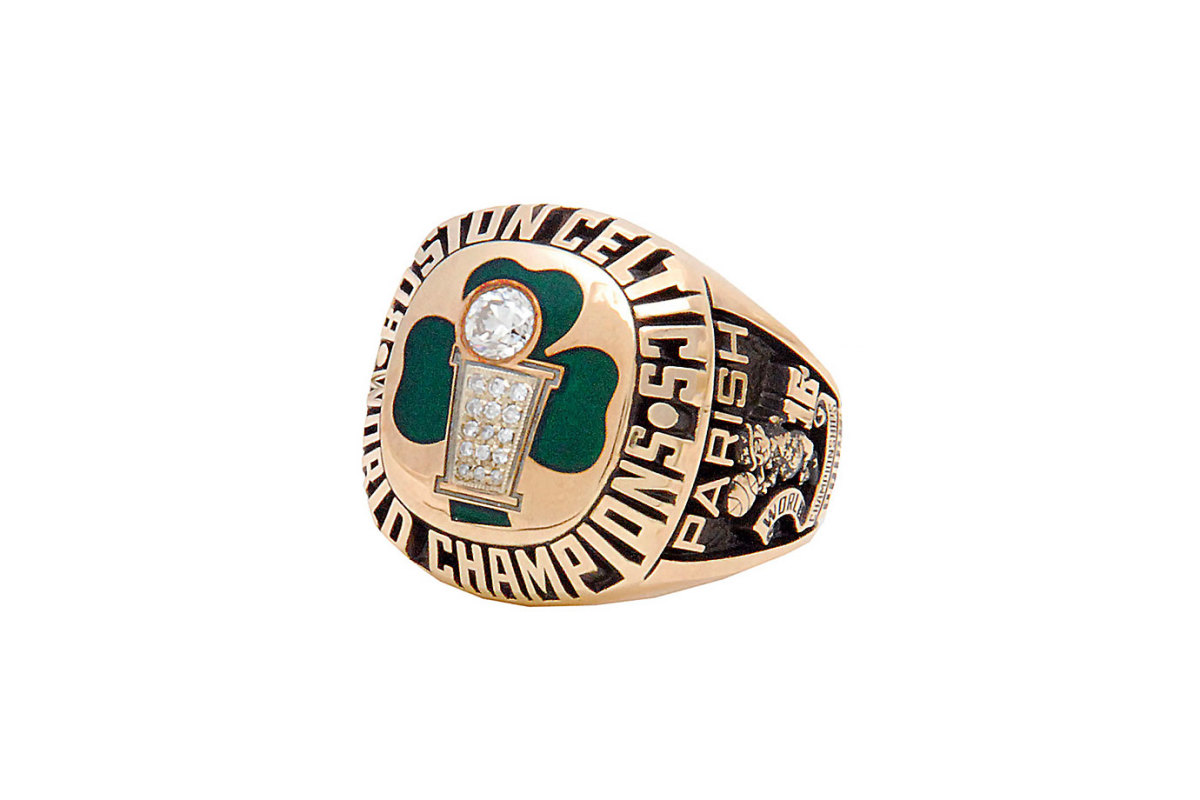
The Celtics captured their second title in three years, defeating the Rockets in six games. Larry Bird fell just shy of averaging a triple with 24 points, 9.7 rebounds and 9.5 assists.
1984-85 Los Angeles Lakers
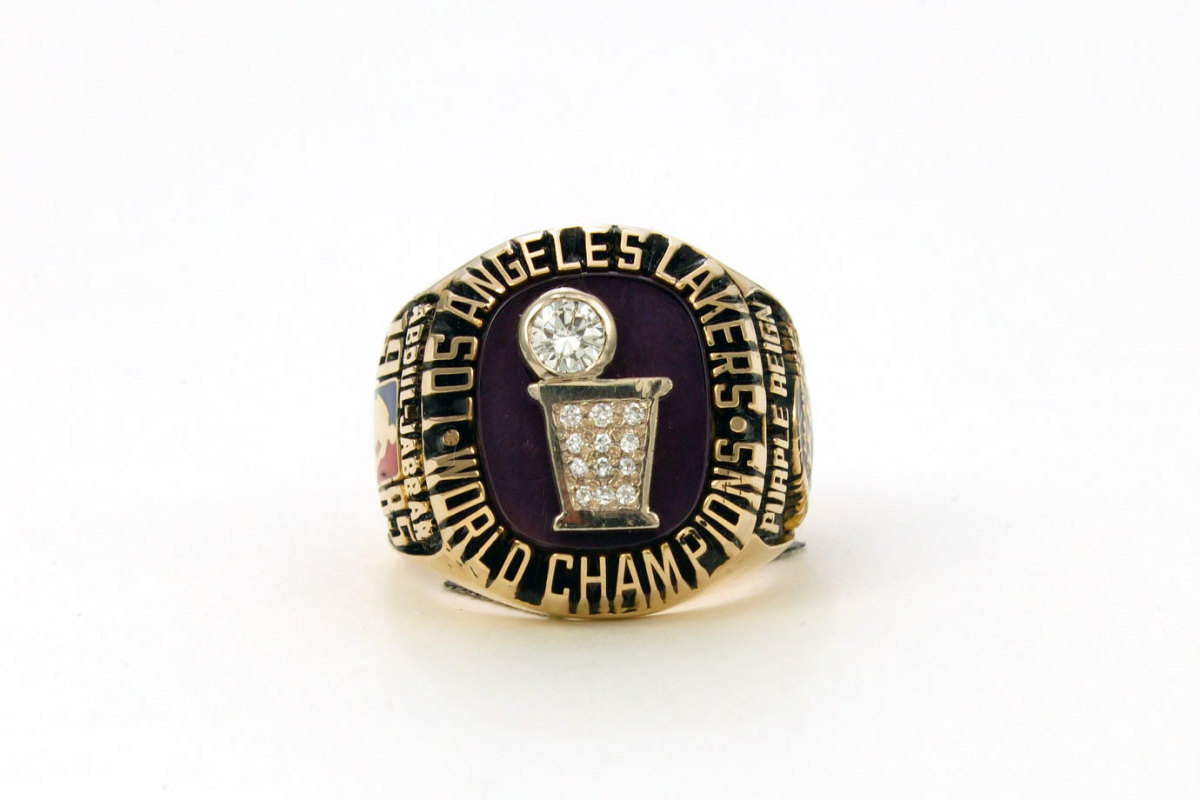
In a series that featured nine Hall of Fame players, the Lakers got revenge from one year earlier with a 4-2 victory against the Celtics.
1983-84 Boston Celtics
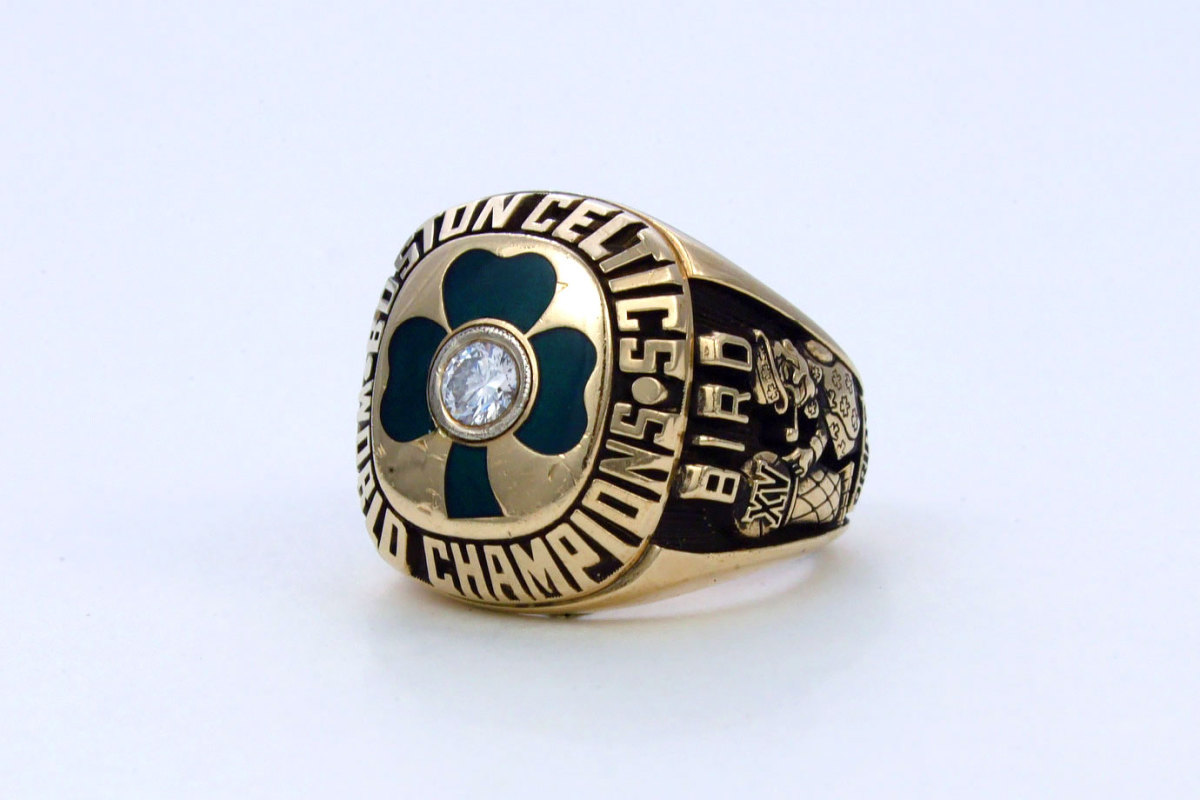
The Celtics came out on top in the first of three 1980s finals meetings with the Lakers. Larry Bird averaged 27.4 points and 14 rebounds, getting the best of Magic Johnson, who's Michigan State team got defeated Bird's Indiana State squad in the 1979 NCAA championship.
1982-83 Philadelphia 76ers
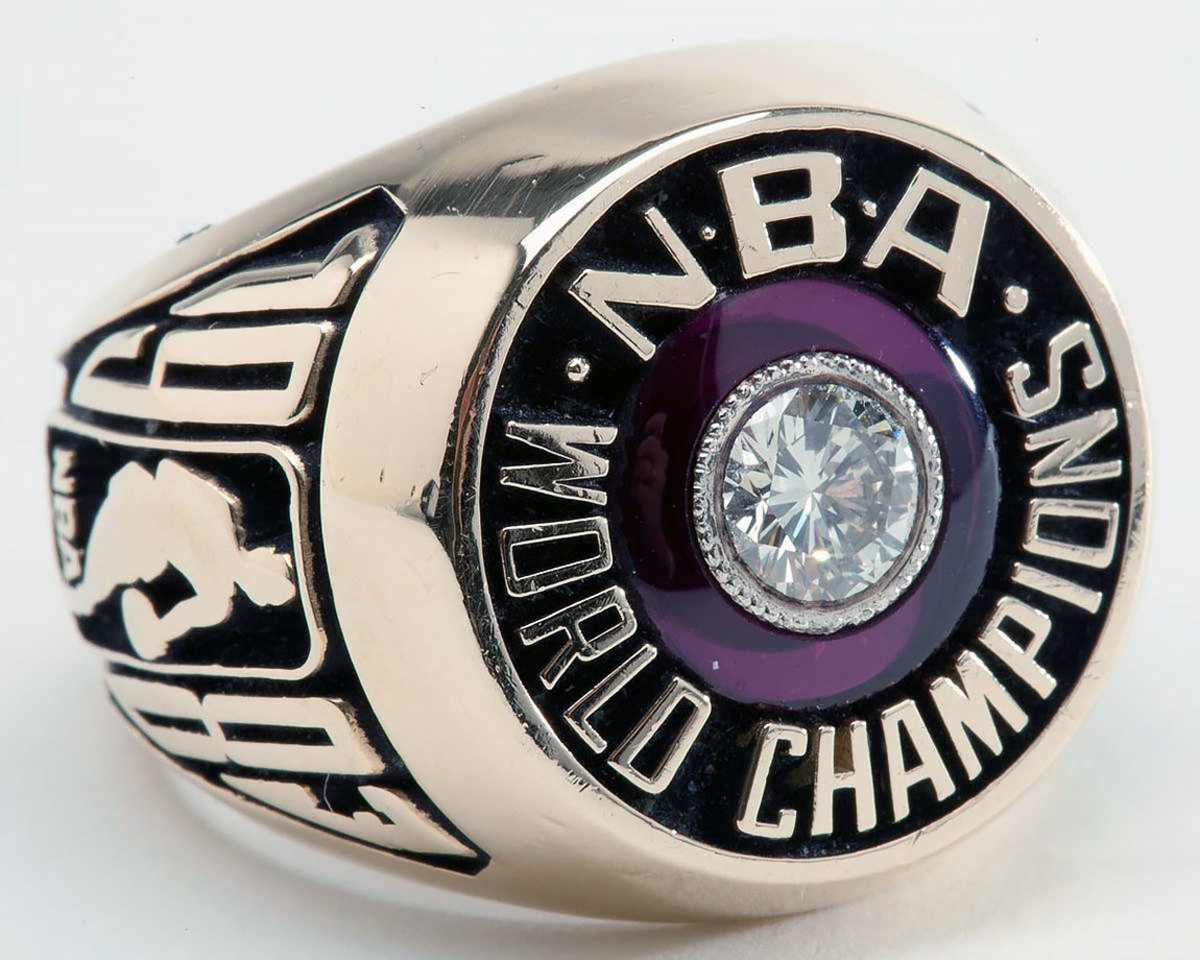
In a rematch of the 1982 finals, Moses Malone tore up the Lakers front line for 25.8 points and 18 rebounds per game as Philadelphia swept Los Angeles.
In sum, the Cavaliers’ upset chances will require a few things to go right. First, they’ll need their three extra days of pre-Finals rest to pay off with a split at Oracle. Second, they’ll need their perfect 7-0 home record in the postseason to hold up. Third, they’ll need to rely on their torrid three-point shooting to keep up in shootouts. Fourth, they’ll need to hope that their defense can remain cohesive and determined enough to take advantage of the Warriors’ choppier moments. Lastly, they’ll need James to be the focal point of the action in this series, much like he was for most of the 2015 Finals.
If all of those things come together, and James rises above, Cleveland has a shot at popping some champagne.
